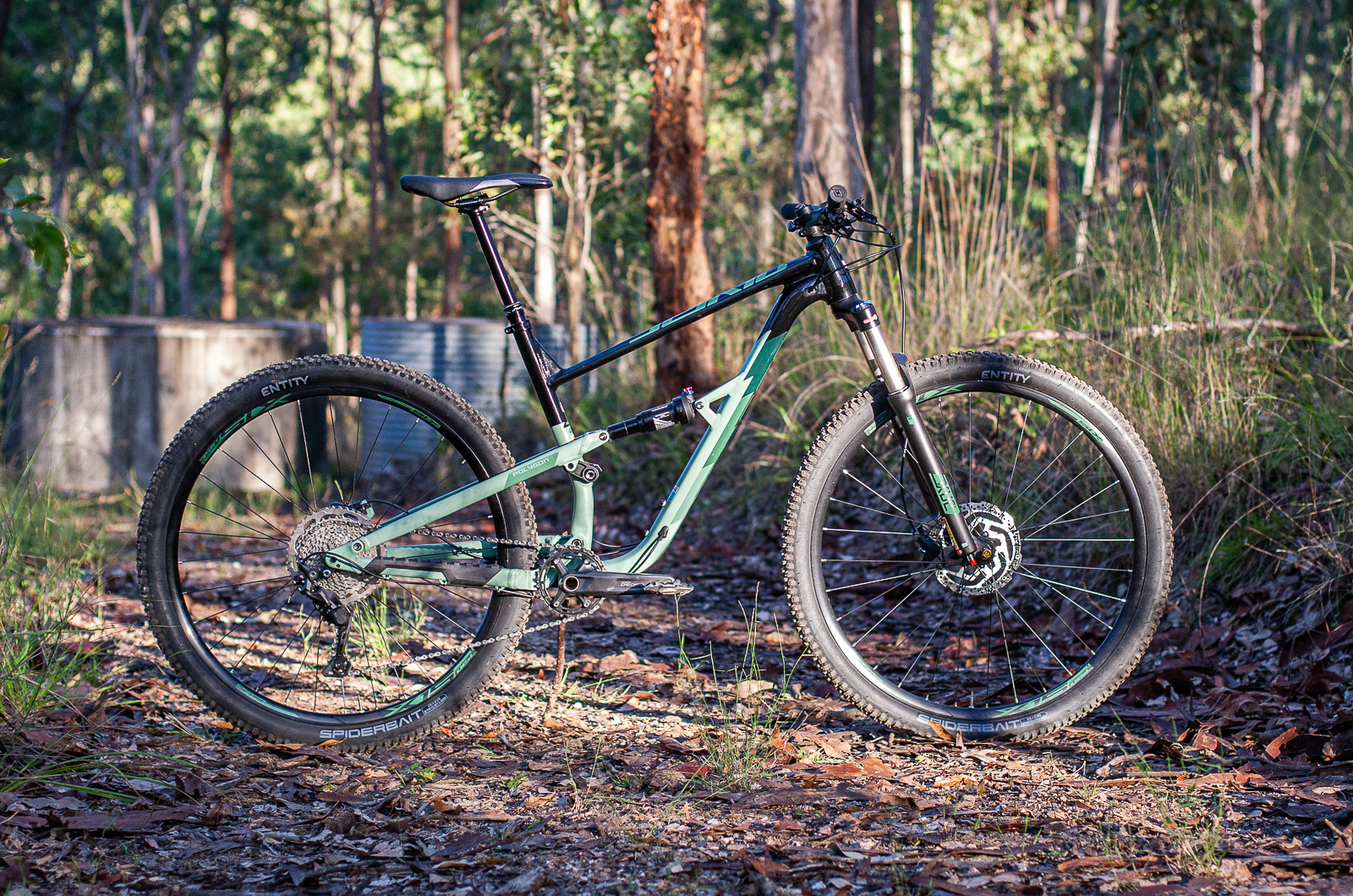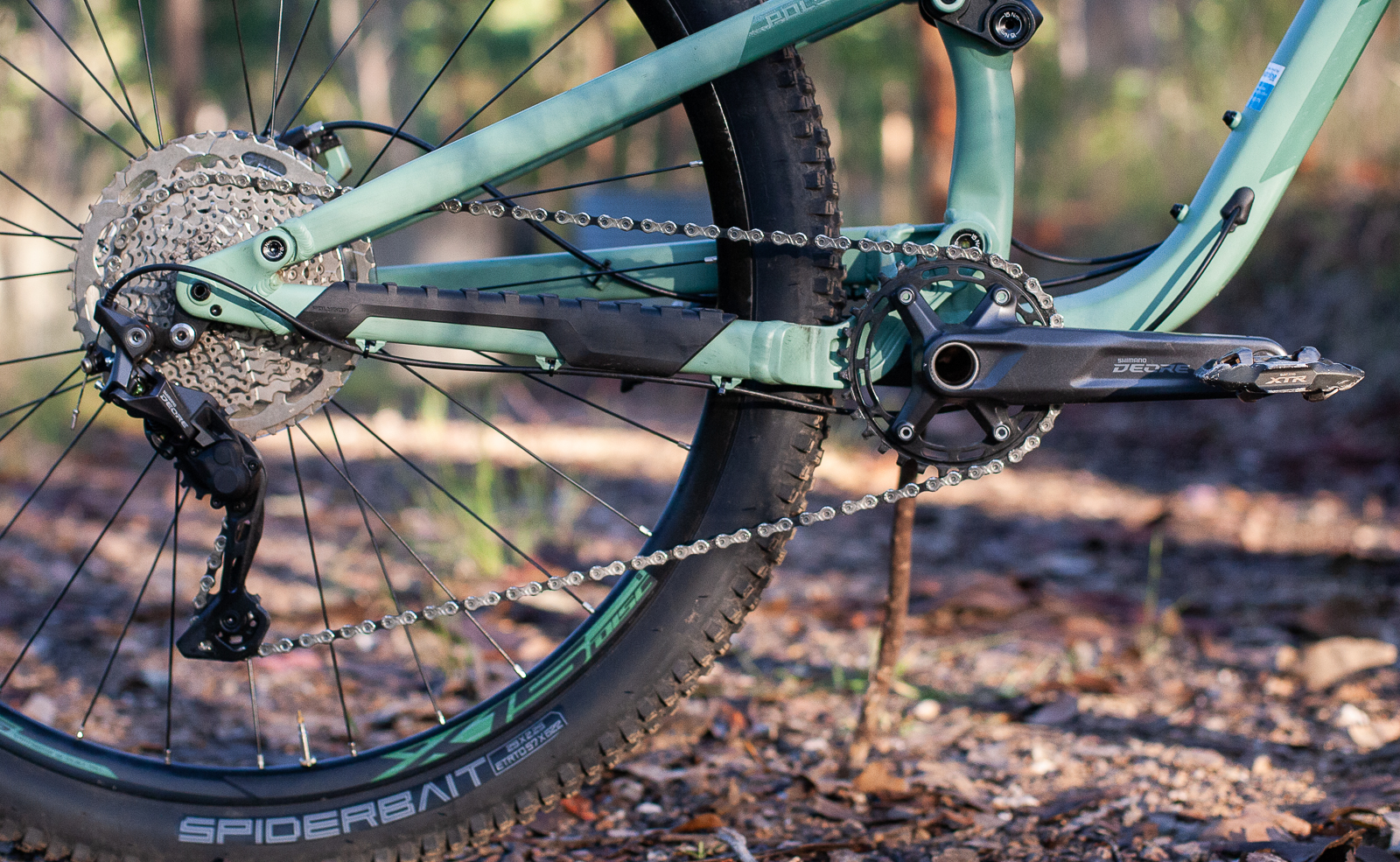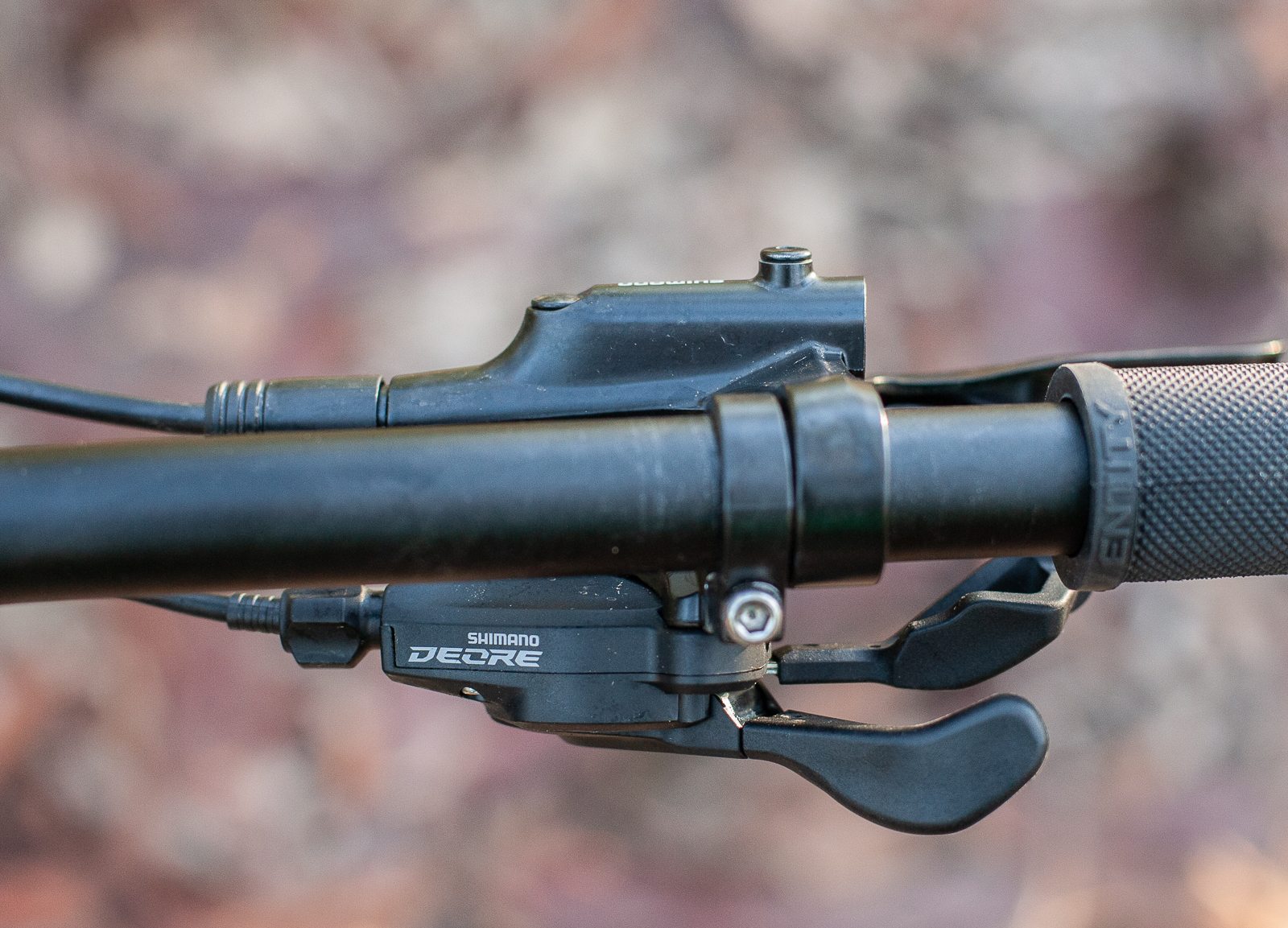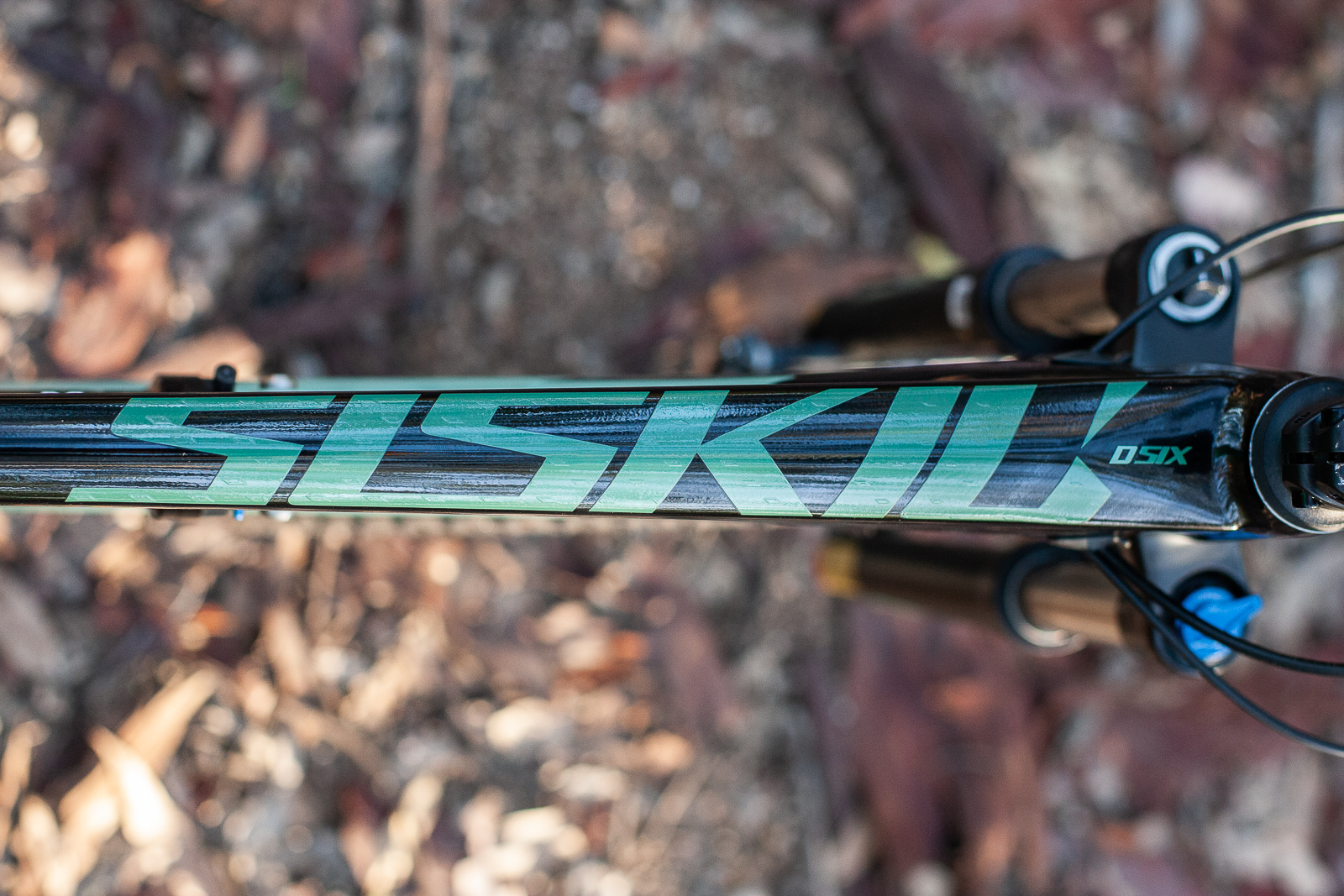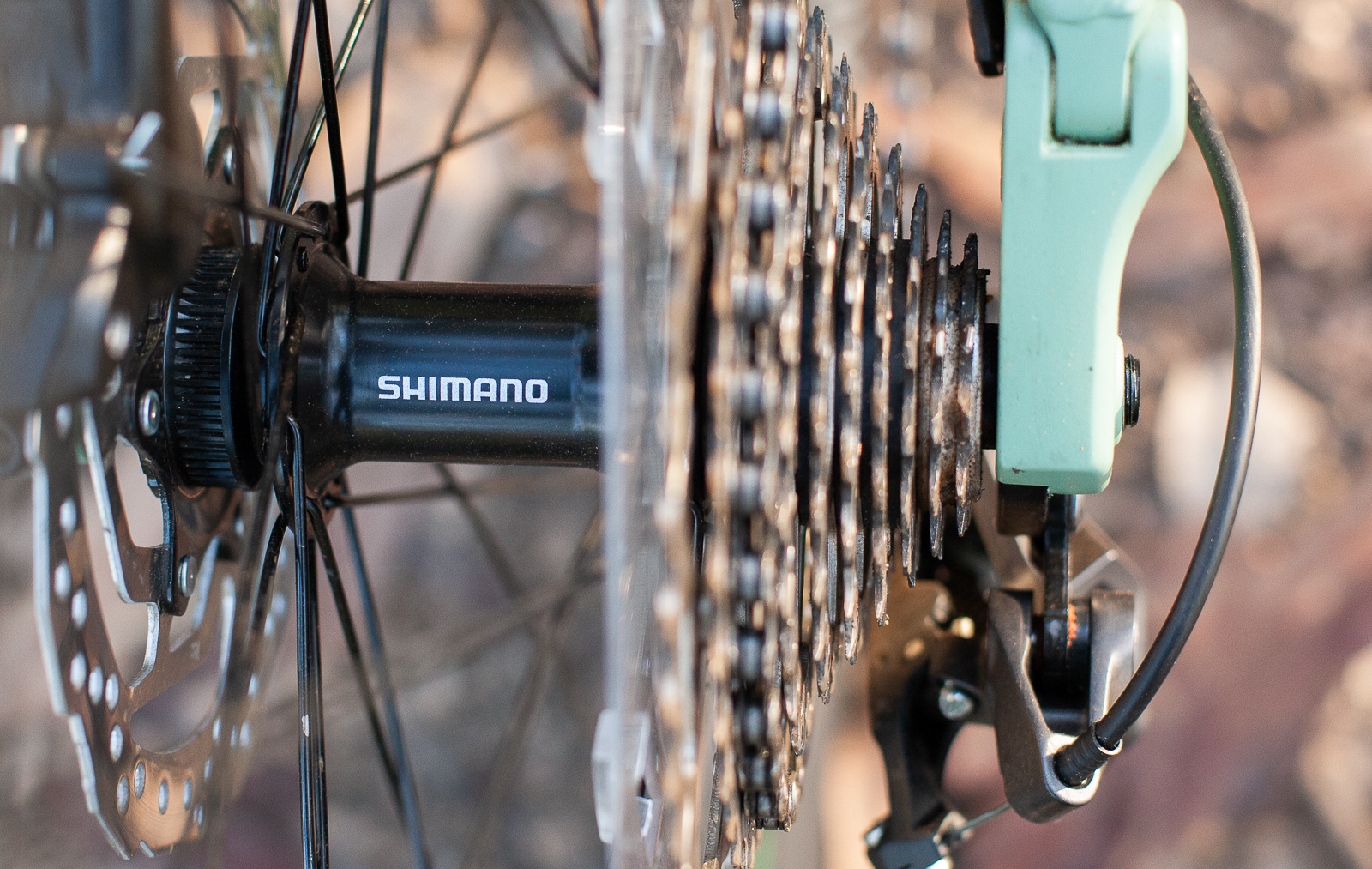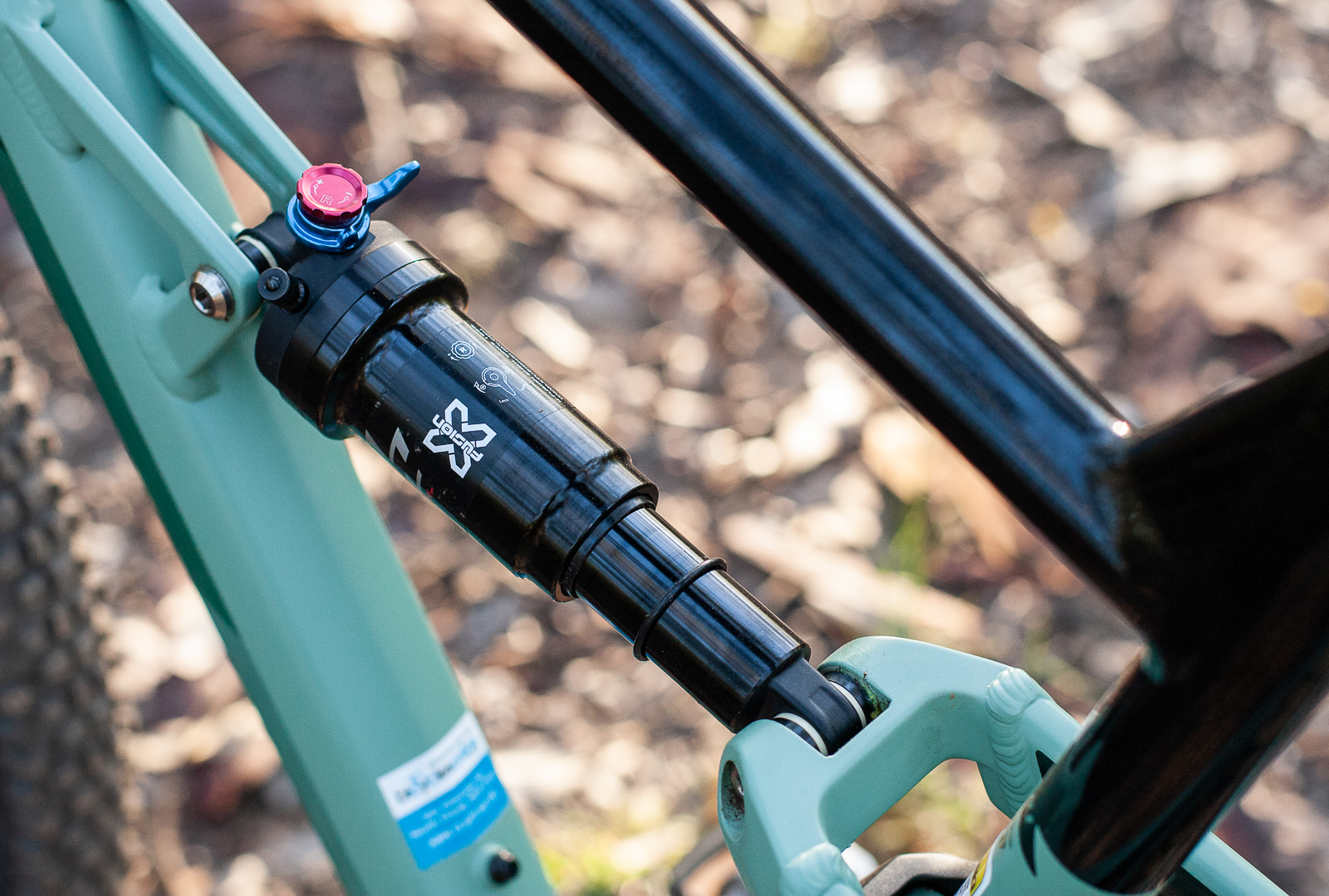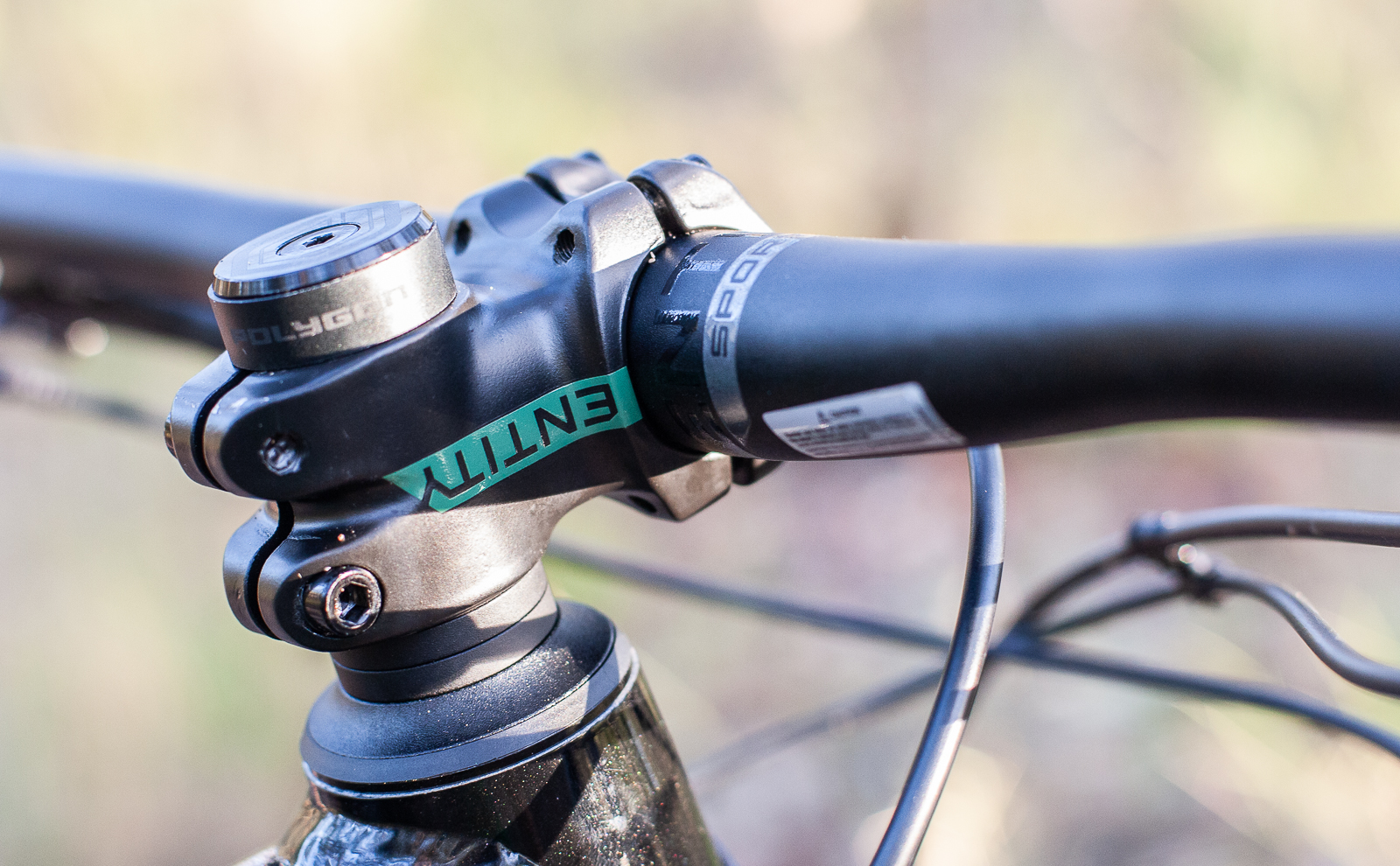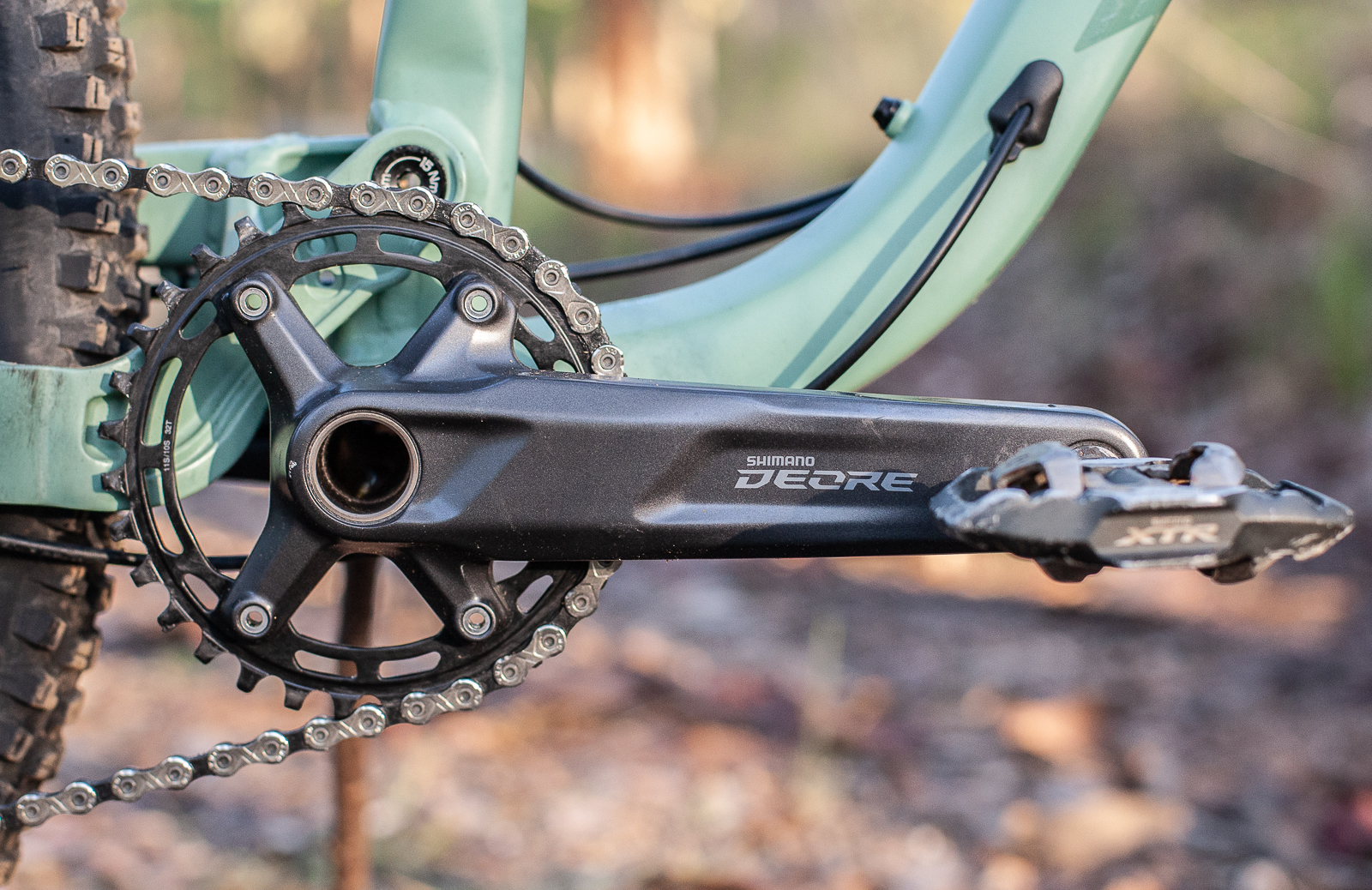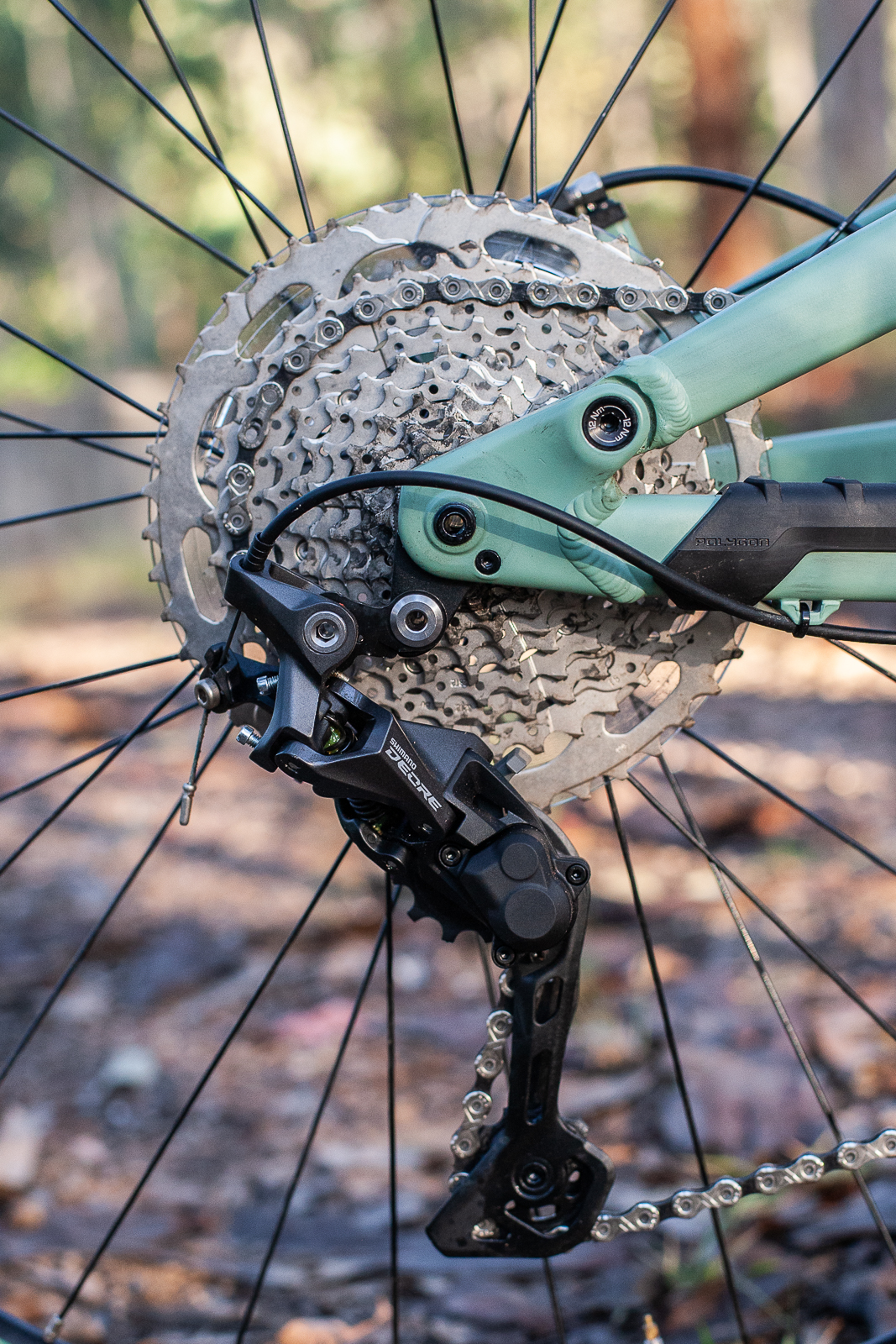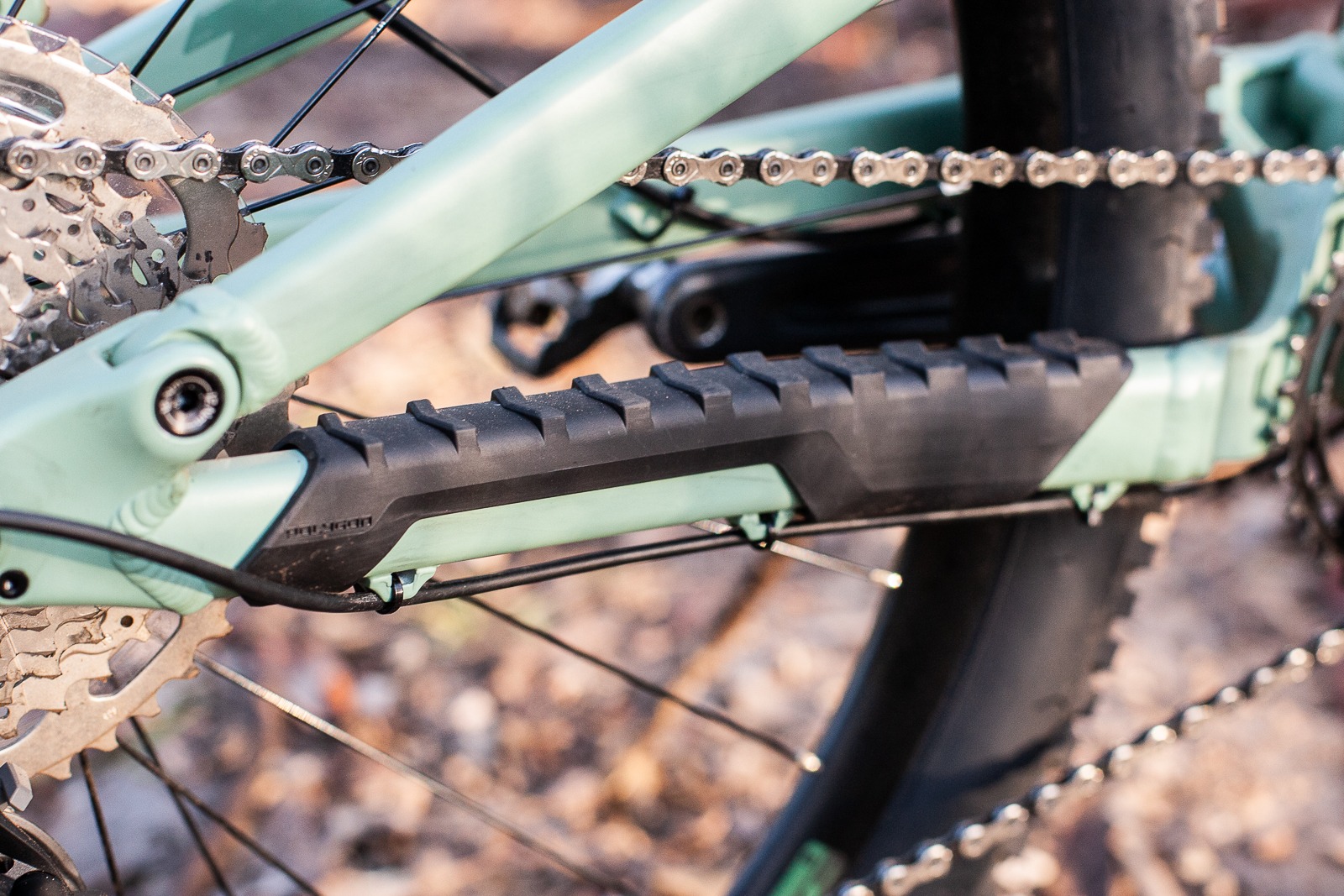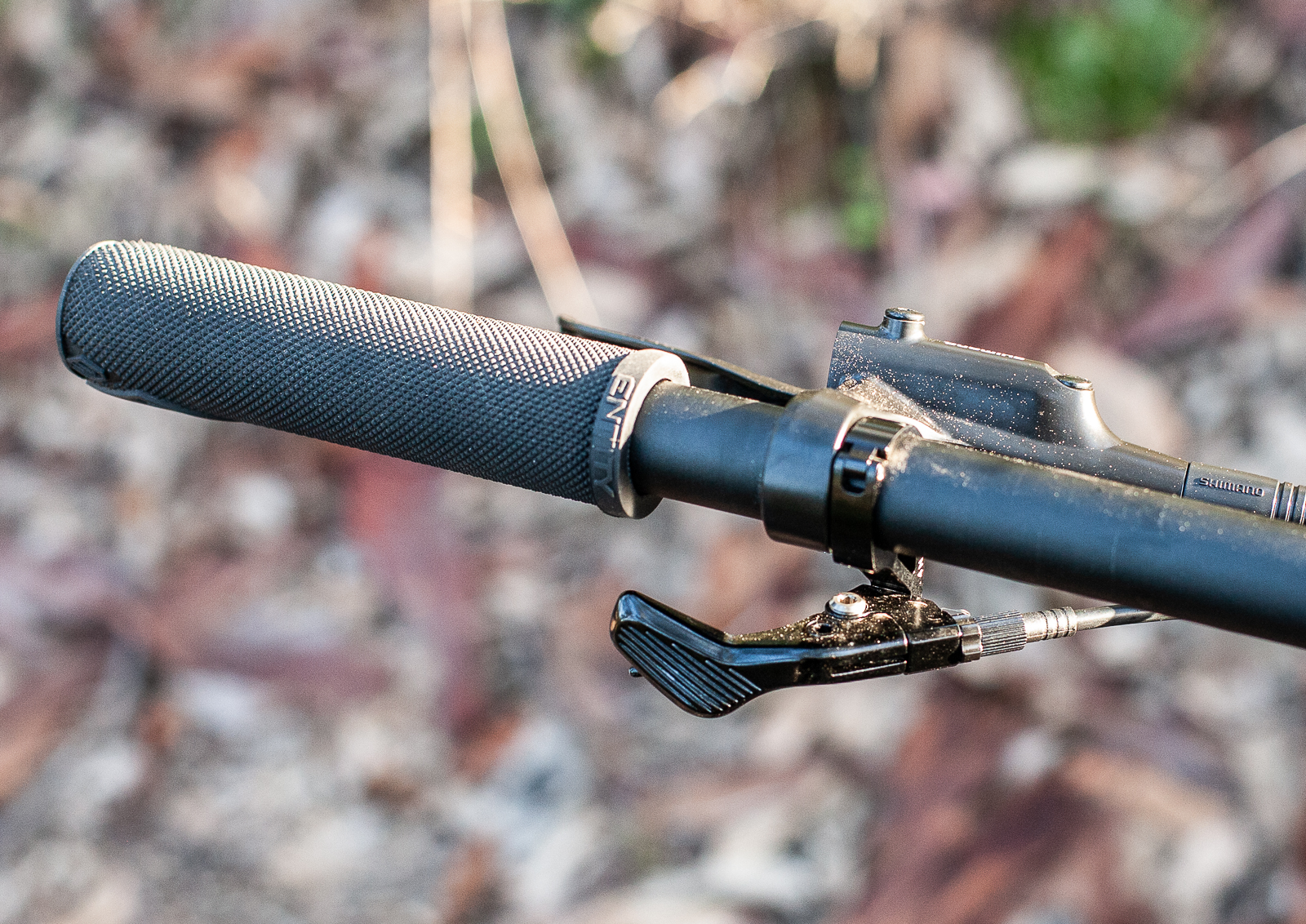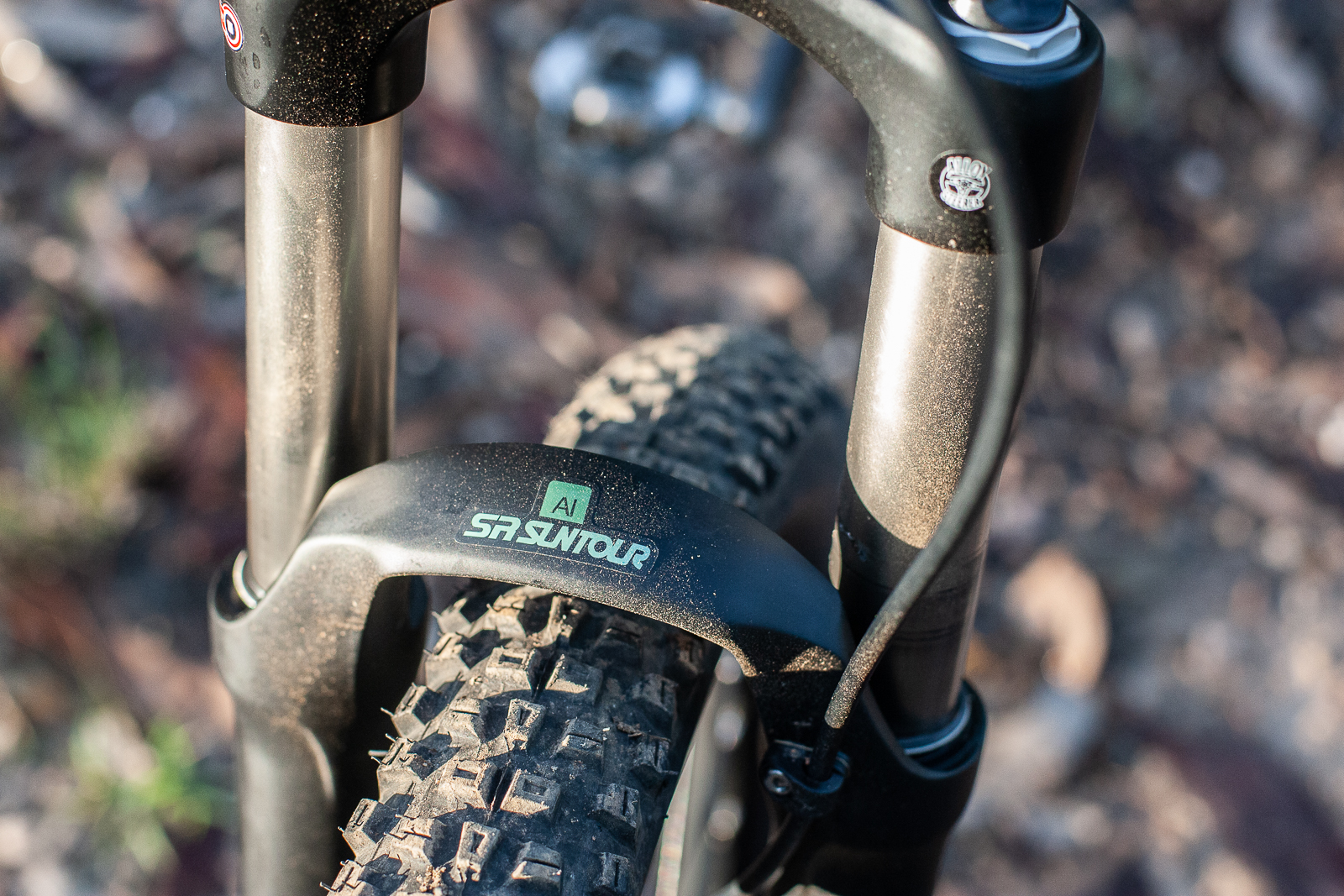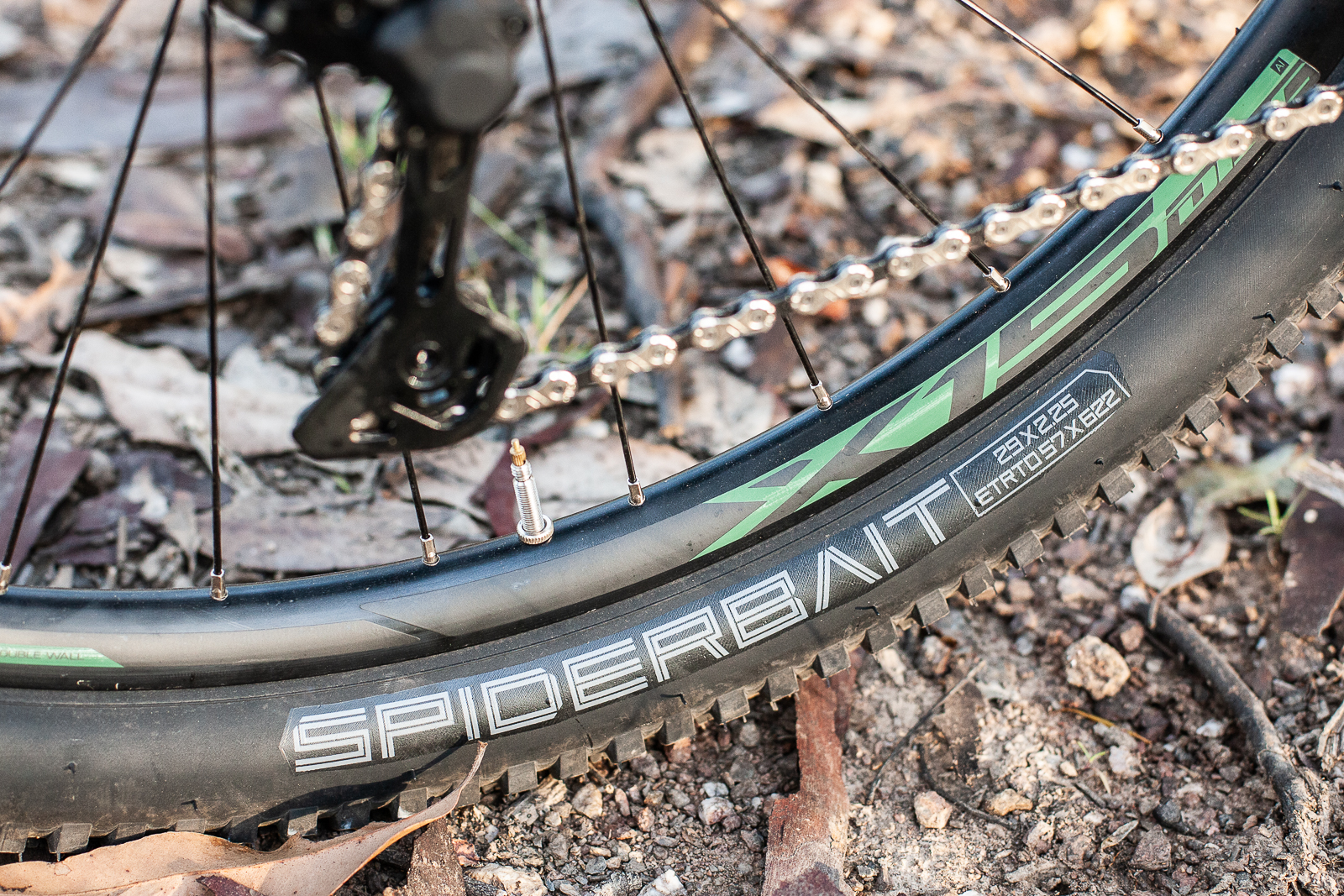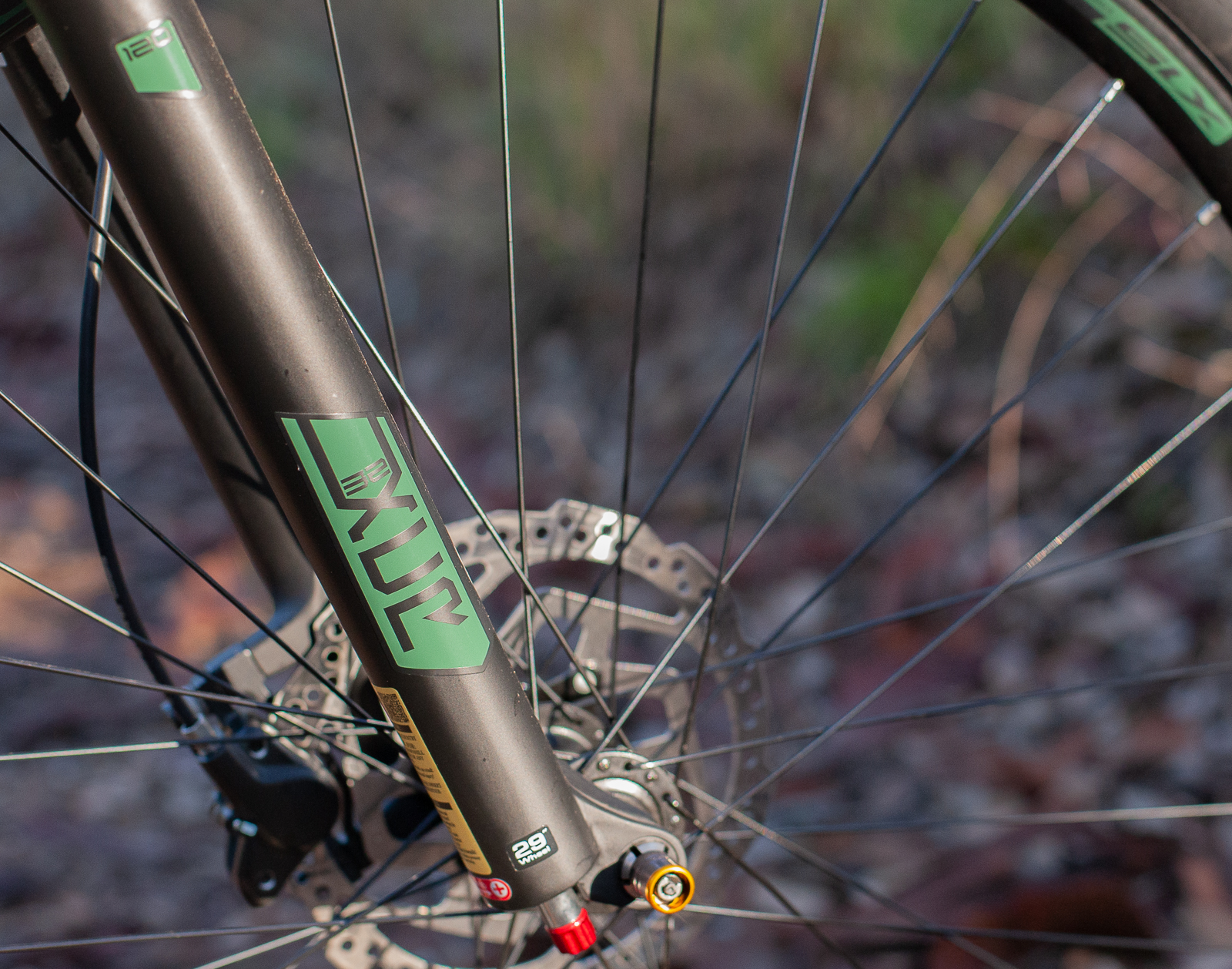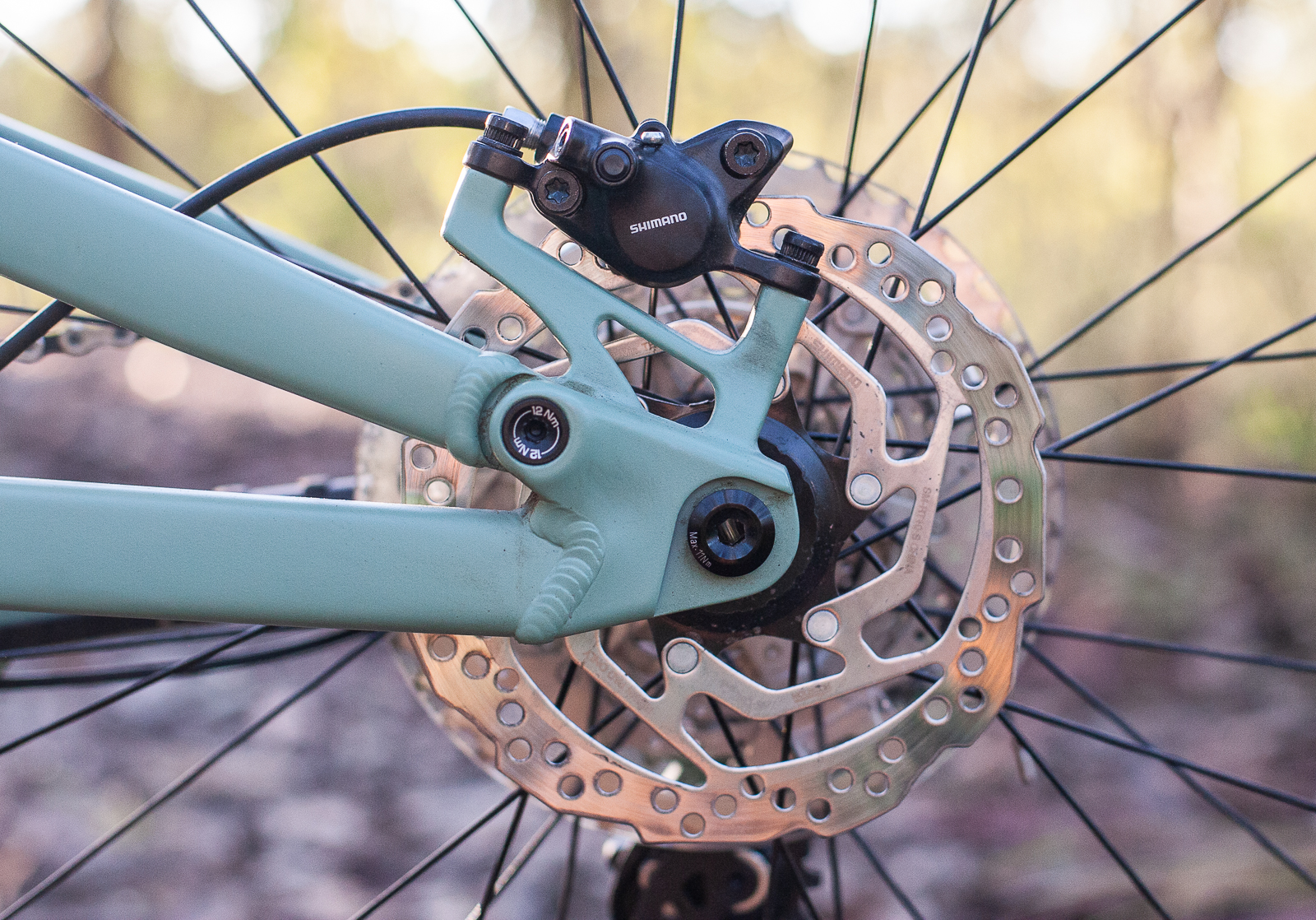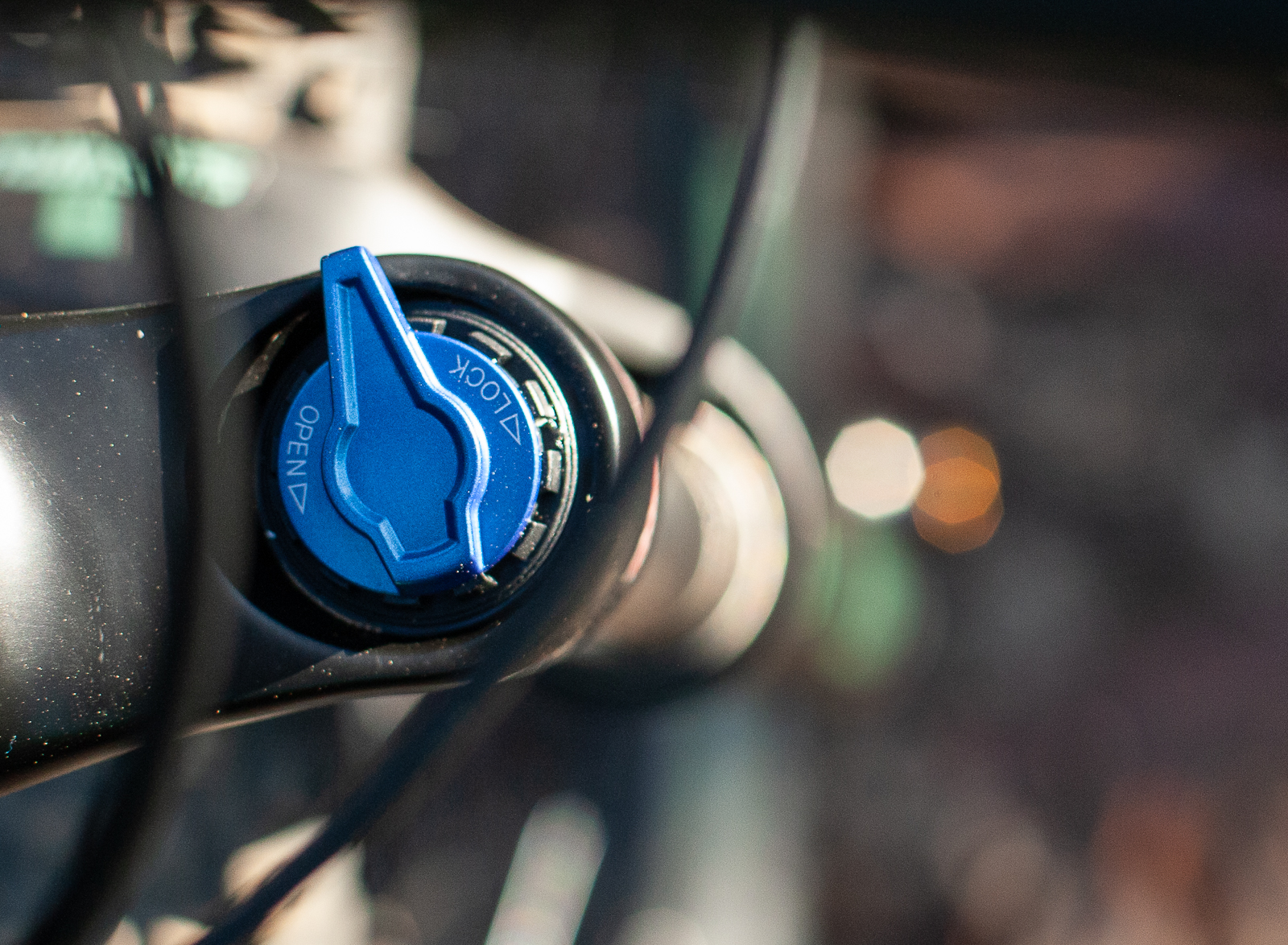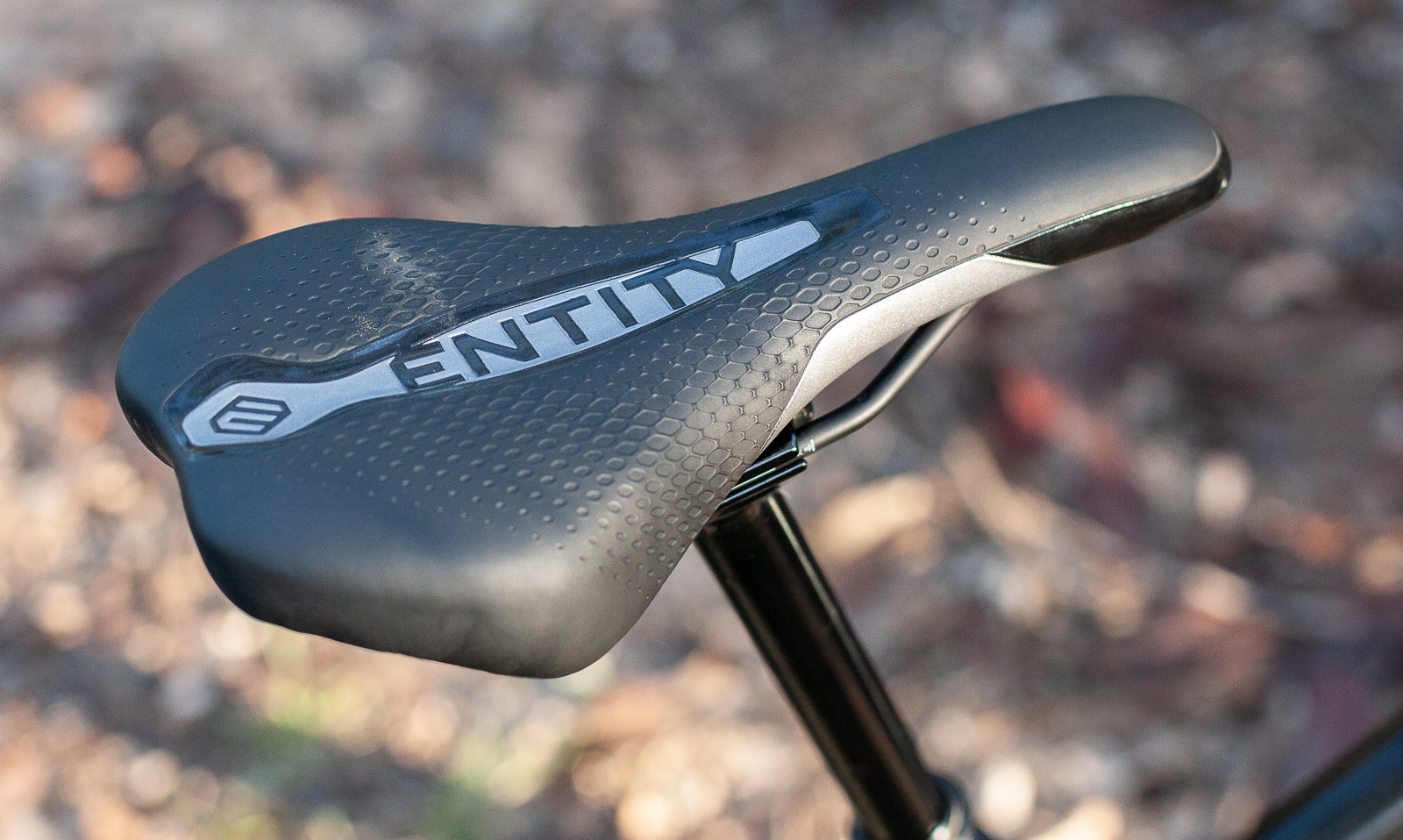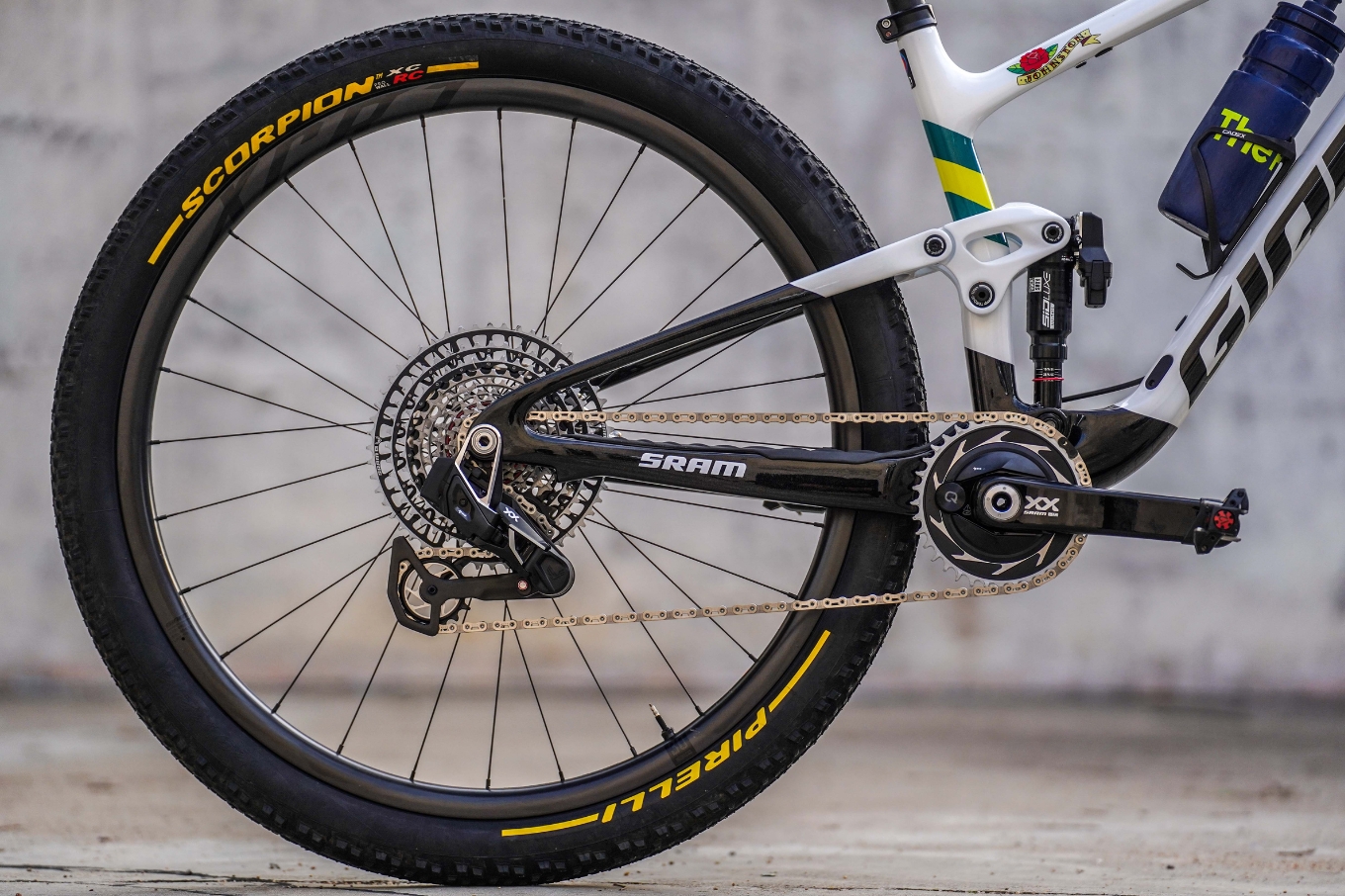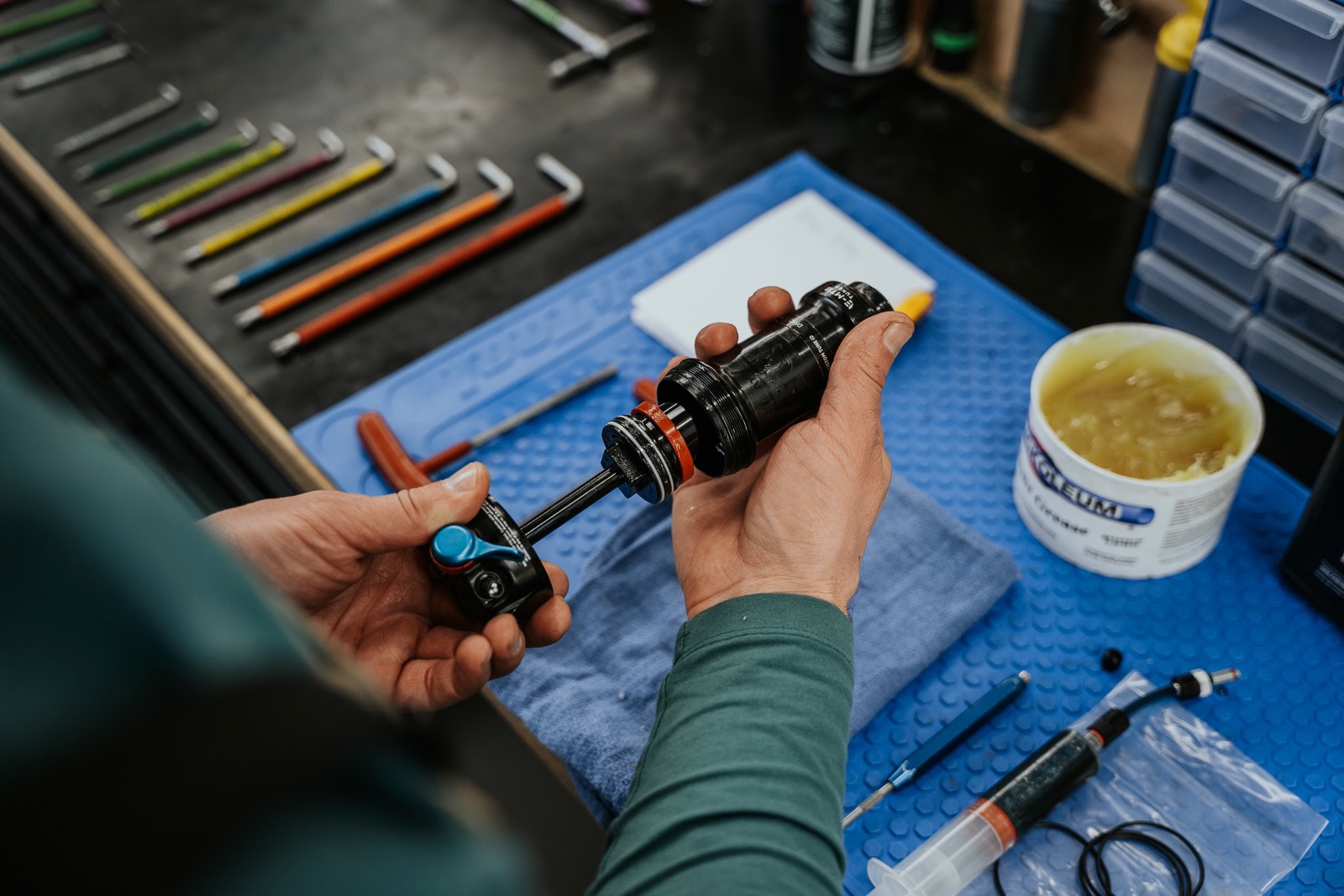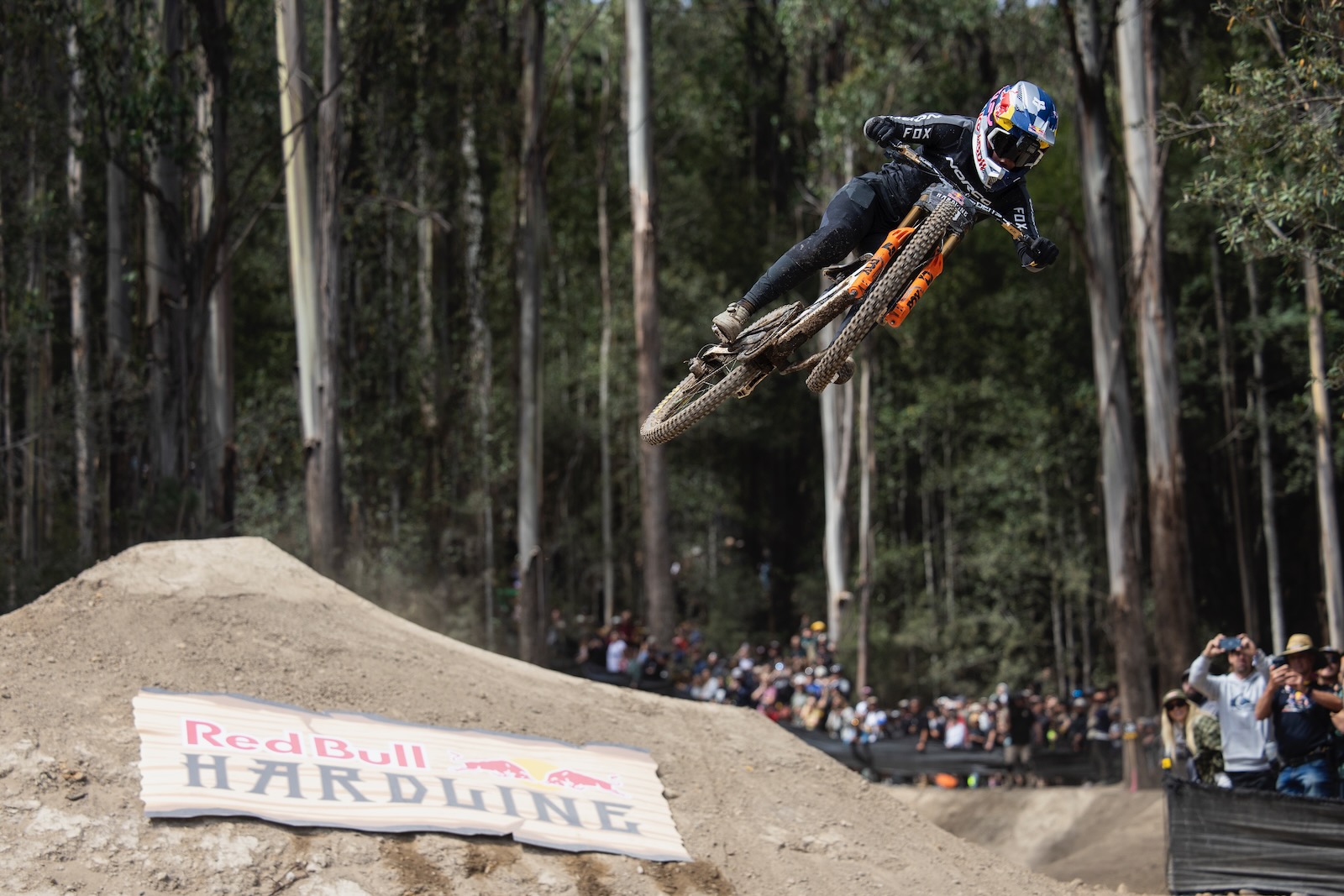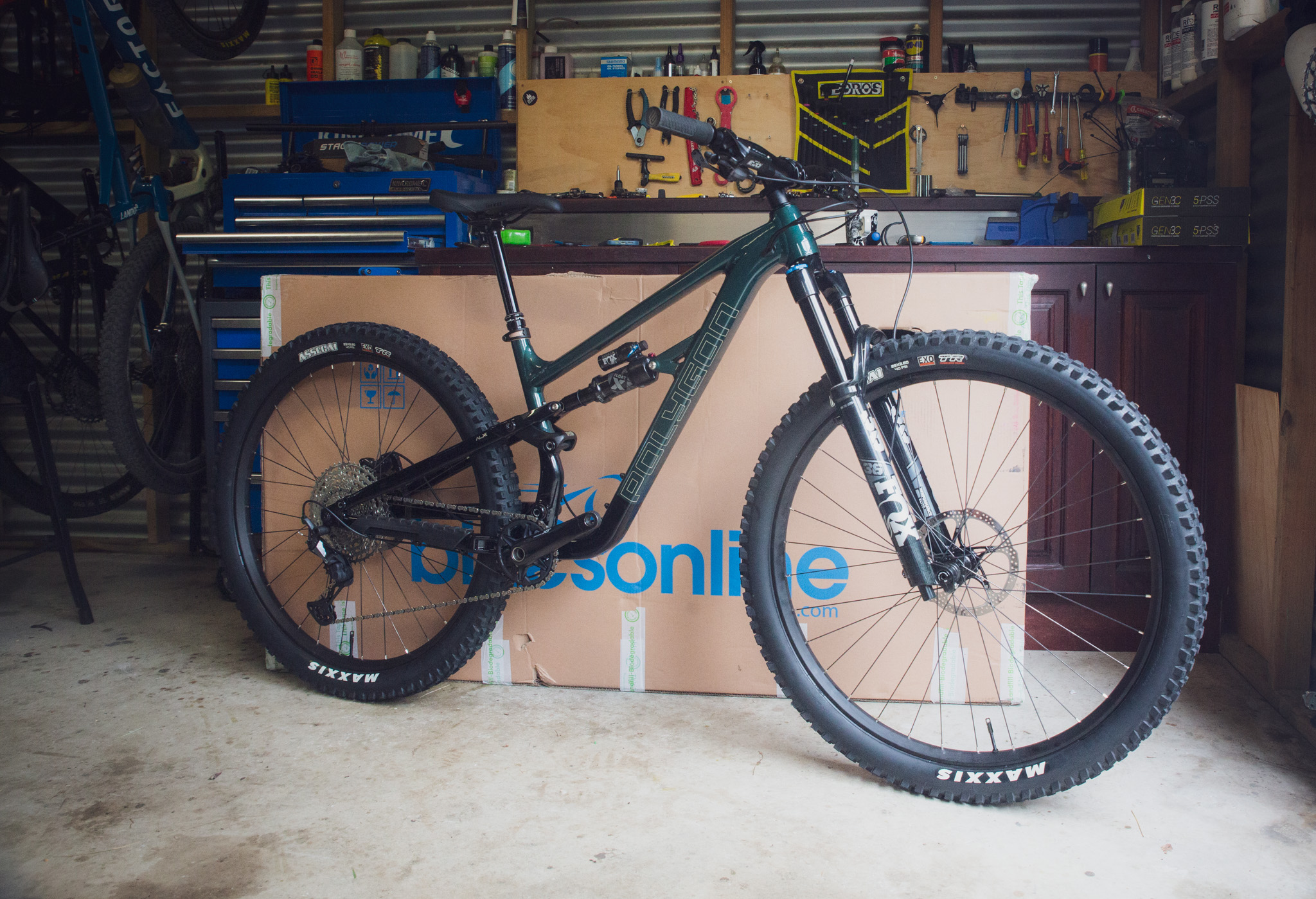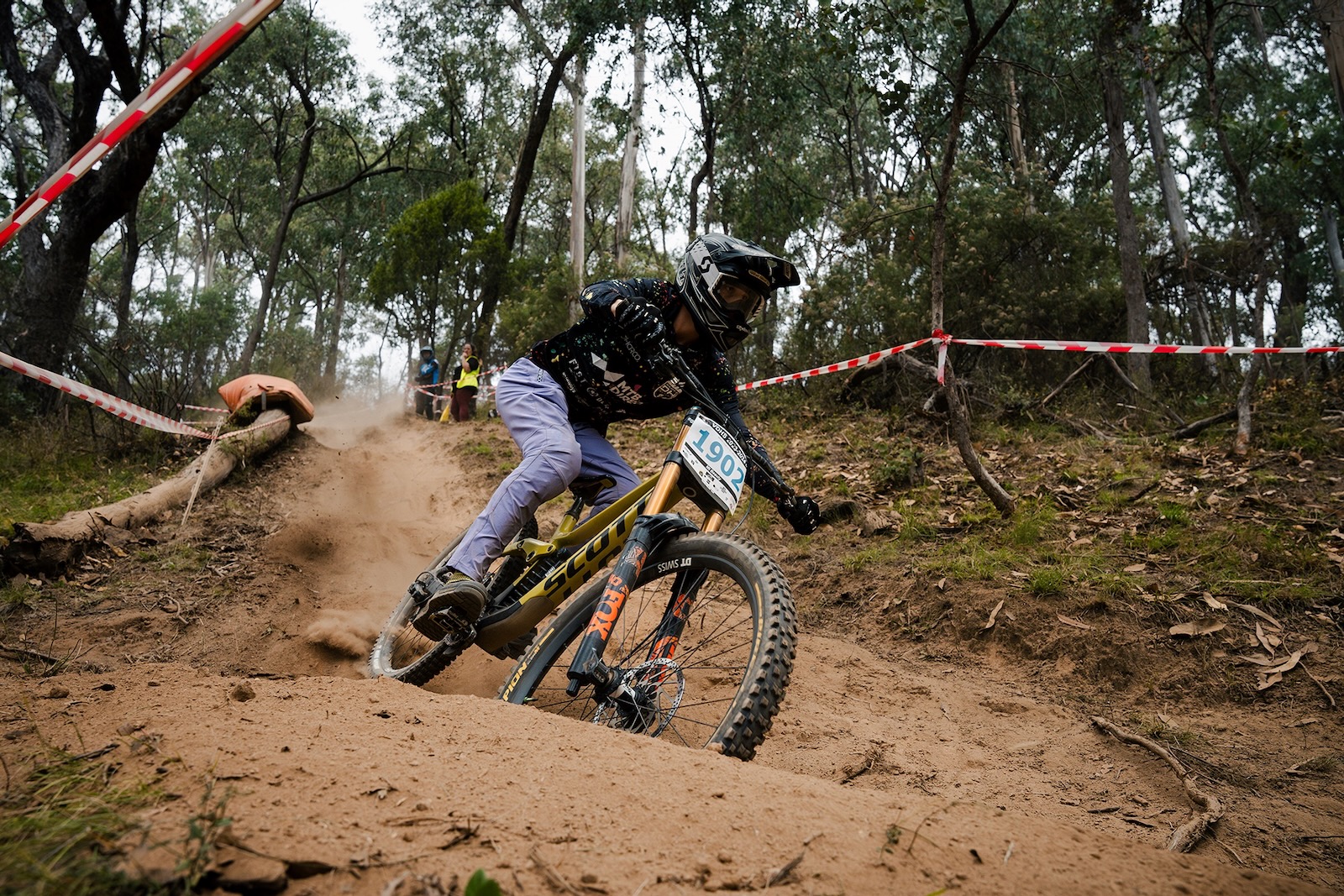TESTED: Polygon Siskiu D6
We put the budget friendly Polygon Siskiu D6 to the test.
Words and Photos: Mike Blewitt
Polygon have continued to grow in the Australian mountain bike market, thanks to their ability to build bikes that suit Australian riders, with parts selections for the price that leave many scratching their heads. Last year I tested the updated Polygon Siskiu D7, and this year Bicycles Online have sent a 2021 Siskiu D6 for review. It has exactly the same frame as the Siskiu D7 I tested last year, just with a slightly simpler parts package, bringing the price to $1999 – the D7 is currently $2399. There is also a D5 for $1299, although it has a 2×9 group set and much more basic suspension. All the Siskius have size specific wheel sizing, which means small and medium have 27.5” wheels, although you can also get the medium with 29” hoops. Large (on test here) and XL come with 29” wheels.
Polygon state that the “Polygon Siskiu D6 defies what an outstanding value dual-suspension mountain bike is capable of. This year's host of upgrades tick all the boxes for those looking for a bike with modern geometry, great XC pedalling efficiency, and all-mountain capability.”
That gives me three big things to work on, deciphering what modern geometry is, decide whether the Siskiu has XC pedalling efficiency, and whether it really does have all-mountain capability.
At $2000 it's hard to pick the exact bikes that the Polygon would compete with. Bear in mind any bike that comes from Bicycles Online (the only place you can buy Polygon), will come in a box delivered to your door. With some very basic experience, they are easy to build, and the tools are provided along with instructional videos online. Shipping varies from around $29 up to around $299 if you live in Kiwirrkura, which is said to be the most remote town in Australia. If you live remote enough to have high shipping costs, chances are your choices of local shops is pretty limited. It's easy to get a shipping quote on the Bicycles Online website if you're unsure what the total will come to.
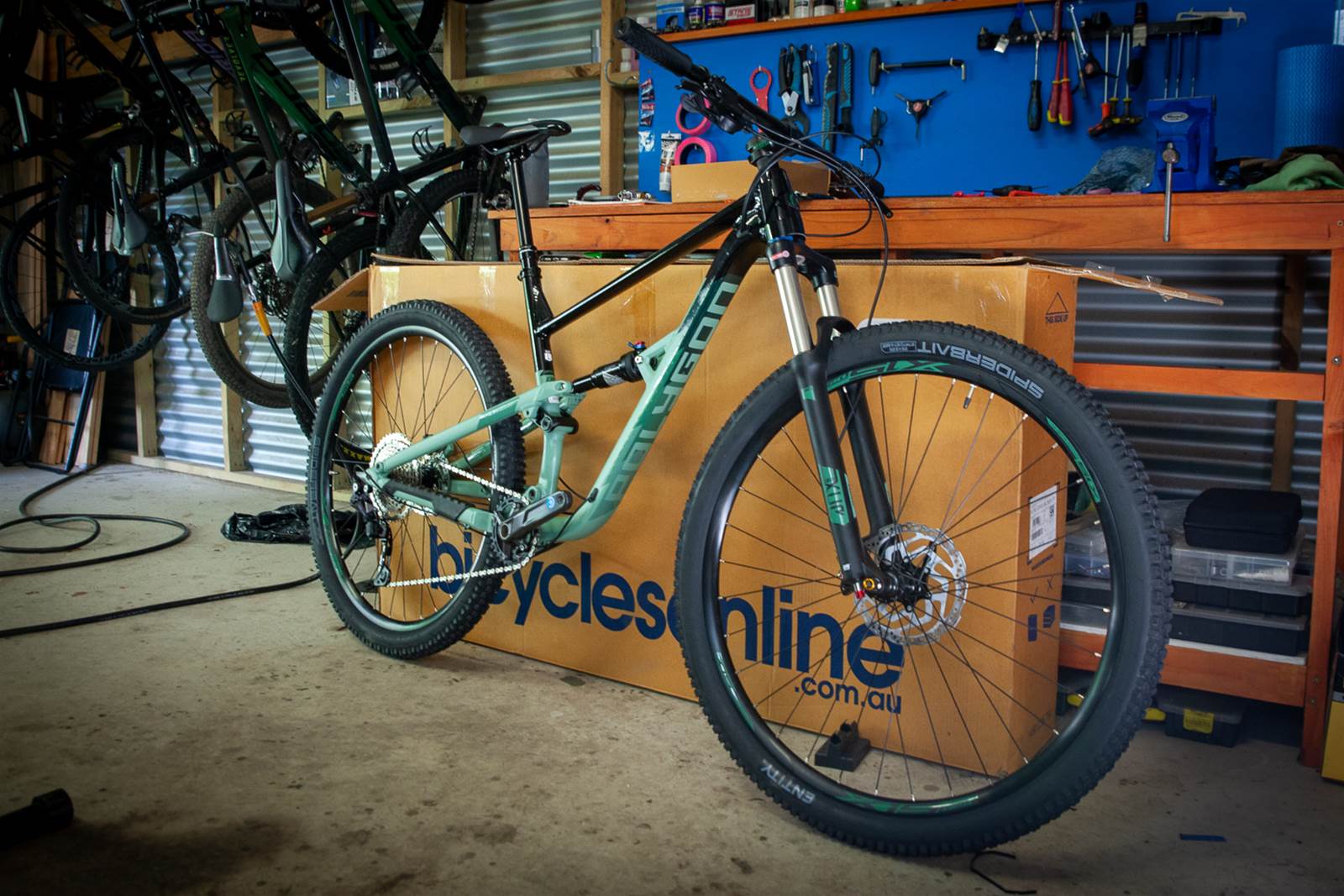
One of the closest competitors to the Siskiu D6 would be the Giant Stance, although it's a full $700 more. That does get a Shimano 12-speed Deore group set and a burlier fork with 130mm of travel. For $2399 the Merida One-Twenty 400 has a Shimano Deore 11-speed group and a beefier 34mm legged fork with 130mm of travel. It might seem like not too much more, but that's still a 20% increase in price over the Siskiu D6. The Polygon really does play in its own price bracket.
Initial Impressions:
Your first impression of the Polygon Siskiu D6 will be gazing at your new toy as it sits neatly snuggled into the bike box it gets delivered in. The bike is held in place very securely, and there's a nice welcome pack on top with your small parts and tools. This includes things like the stock flat plastic pedals, and the Entity Torque wrench and tool bits to build your bike.
While I had to fit the handlebars, front wheel and dropper post, this was all easy to do, and I did it without using my workstand – it still was barely even 6 minutes, including a thorough check over of all bolts. It almost took longer to put all the packaging away neatly than it did to build the bike.
As I noted in the review of the 2020 Polygon Siskiu D7, the Siskiu frame had a ground up redesign for 2020. This meant updated geometry, and room for a water bottle mount on the down tube. The updated geometry, touted as modern geometry, is just about a perfect fit for a 120mm travel bike that is targeted at riders getting into mountain biking. Super long and slack bikes can take more aggressive intent to get the most out of them, and shorter, upright bikes may be comfortable cruising on a bike path – but they don't feel so fun when trails get faster and steeper. The frame on the Polygon Siskiu D6 walks a nice middle ground.
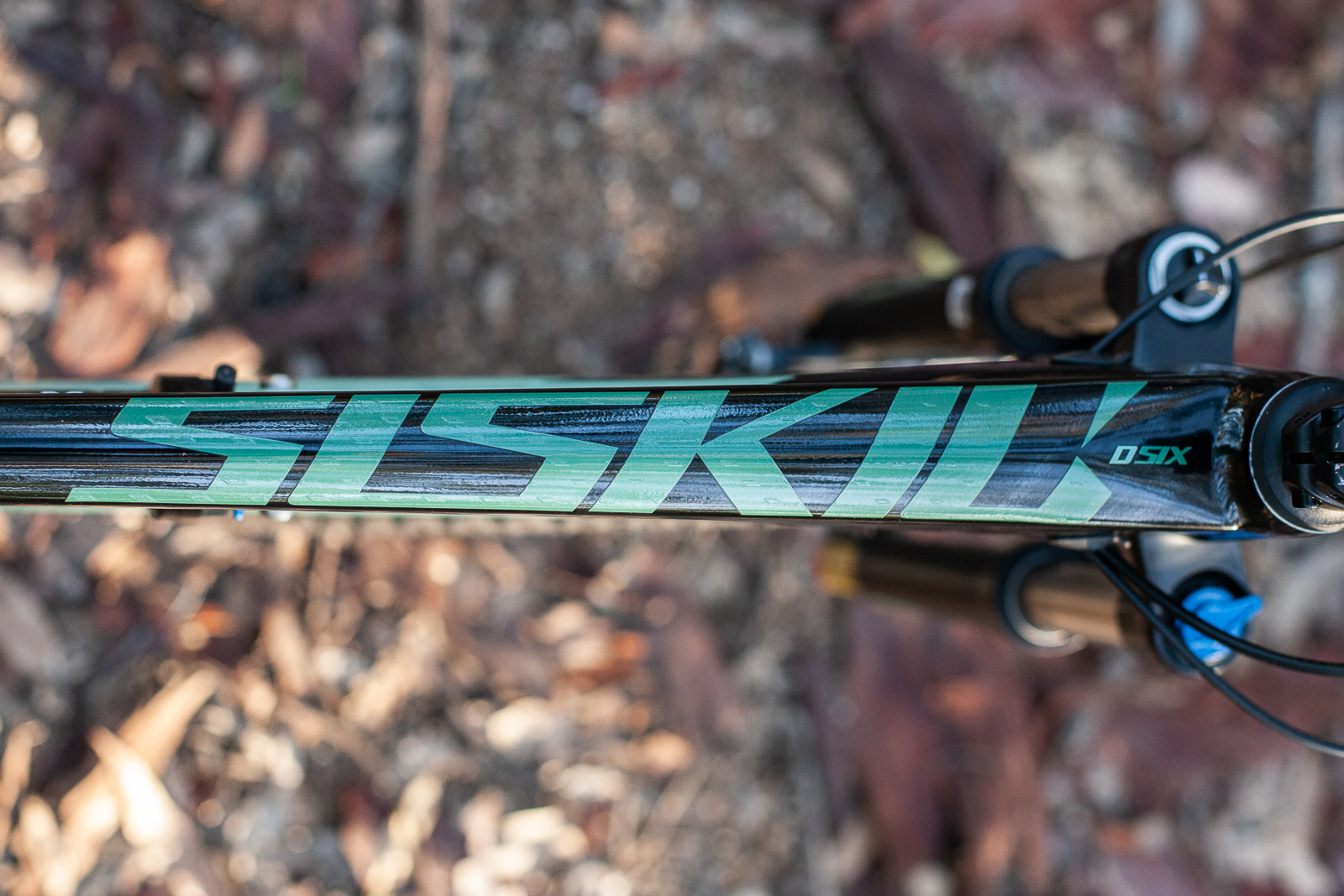
On the large test bike, this relates to a snug 436mm chain stay with Boost (148x12mm) axle spacing, a 67.5 degree head angle, and a reach of 465mm. The effective seat tube angle is 76 degrees, which helps keep you centred when pedalling up hill. The bars are 760mm wide with a 45mm stem, and on the large the crank length is 175mm, and dropper post is 170mm drop. Small and medium get shorter 170mm cranks and a shorter 150mm dropper.
The aluminium frame is stout where it needs to be and slender where it can be, and the welds are all neat. There is internal routing for the main frame which completes a really neat appearance. Colour is personal but I really like the muted green colour scheme on the D6 compared to the 2020 D7 colour. On the scales the bike clocks 15.21kg before adding pedals.
Tester: Mike Blewitt
Riding Experience: Current AMB Editor and cycling lifer.
Generally Rides: Norco Revolver 29 FS and HT, Norco Threshold CX bike
Height: 178cm
Weight: 73kg
Bike Test Track: Best bits of Greater Brisbane
On The Trail:
Let's be clear, $1999 is much less than many passionate mountain bikers might spend on a new, dedicated mountain bike. So how much fun can a 120mm travel full-suspension bike be, anyway?
Riding the Polygon Siskiu D6 is just as fun as riding most other 120mm travel mountain bikes, for the majority of the time. The frame tracked true and the whole thing just worked – albeit with a little less pizzaz than a higher spec bike. The Shimano Deore 10-speed components clicked through their gears with no fuss, and with a clutch and new chain stay protector it was a quiet ride.
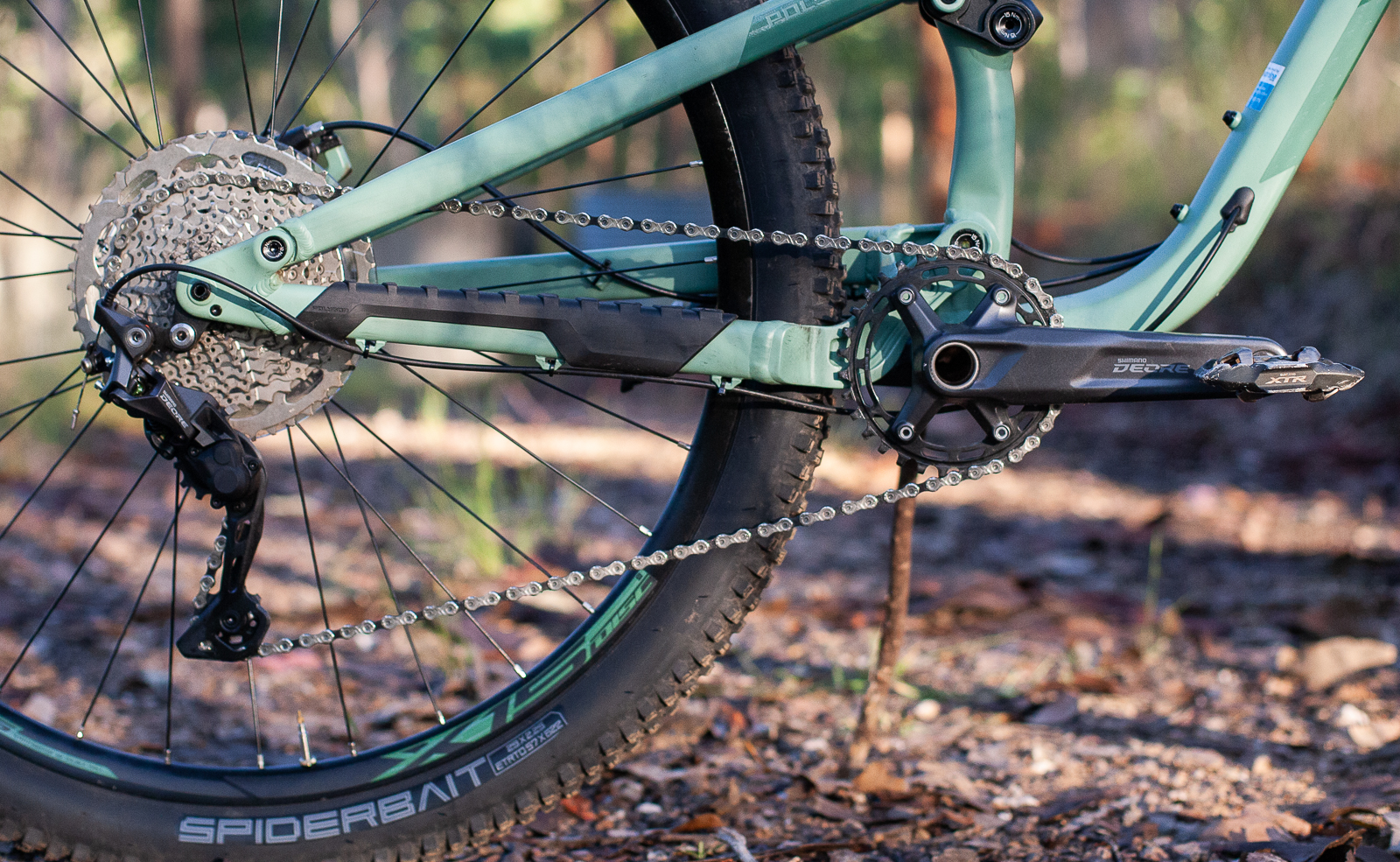
Just like last year, I am really impressed with how the Polygon pedals when riding up a firetrail, or riding flowing trails. Sure, it sounds silly to bang on about how well a bike goes uphill, when most people live for the downhills. But unless you have a personal shuttle service, you'll be pedalling a bike uphill. While the 11-46 range seems small compared to a modern 12-speed spread, with a 32t ring I had a great gear range, and the neutral position on the bike was easy to sit and pedal.
We've only recently seen lower priced bikes adopt updated geometry, and along with the Polygon Siskiu the Merida Big Trail is another bike that springs to mind. It really shows that while nice parts are nice, how a bike handles is the real decider on whether you're enjoying your time off road. The geometry on the Siskiu offers no huge surprises, and I got along with it really well on the D7 last year. But like on any mountain bike, and a dual-suspension bike specifically, a lot comes down to getting the suspension setup correctly.
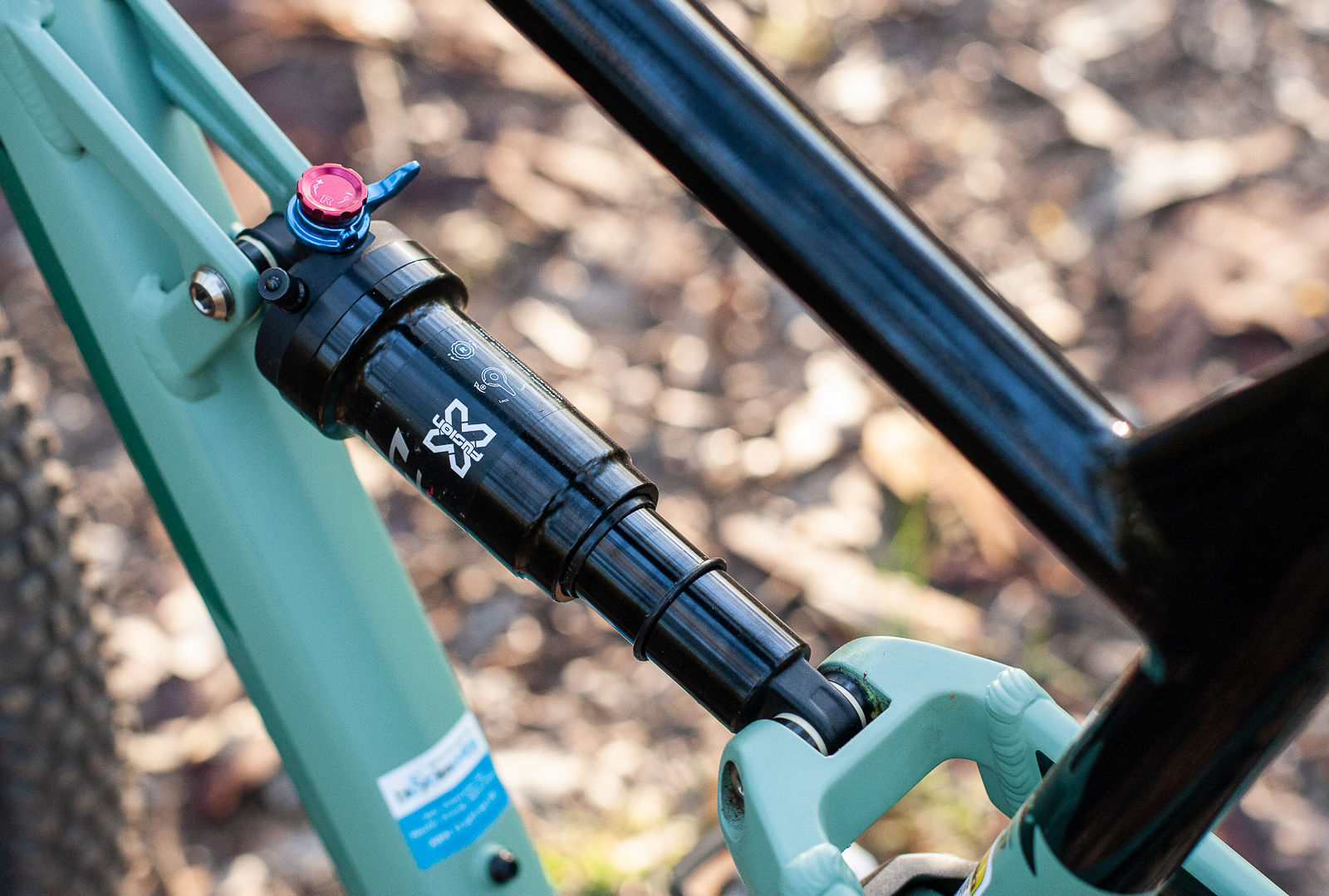
I prefer to run my suspension firmer when starting out on a test bike, and I did the same on the Polygon. I ended up happy with 20% sag, or 9mm of the 45mm stroke. This let me use all the travel occasionally, while still being great under pedal feedback, even without needing to reach for the lockout. The lock out and rebound adjuster on the X-Fusion shock have a precise feel in use, so you know when you're moving them, and they don't budge on their own. The rebound has a great range of adjustment, which is important so it can cover a wide range of air pressures and riding styles.
Running a little firmer in the rear shock helped maintain the bottom bracket height. I do still think these bikes could have 170mm cranks throughout the range. I don't mind reading a trail and timing my pedal strokes to avoid pedal strikes, but if I were running the bike a little softer and had a little less riding experience I'd likely be striking pedals more often.
Want more trail bike reviews? Check out other do it all bikes we've reviewed below:
The suspension fork did hold the bike back a little. The Suntour XCR fork has 32mm legs and 120mm of travel, plus an alloy steerer. It has rebound damping on the base of the right leg, compression damping to lockout on the top, and an air spring in the left leg so you can set the spring pressure. The fork has quite a lot of stiction and the stock rebound is a little slow, which is likely perfect for people landing big, single hits. But that's not really the remit for this bike. I had to run it all the way out and I still would have preferred it to be a little lighter, to aid in a bit of pop. The stiction meant that there wasn't much small bump compliance, event at lower pressures. It matched how I set the rear running it a little firmer, but I doubt most riders would like this.
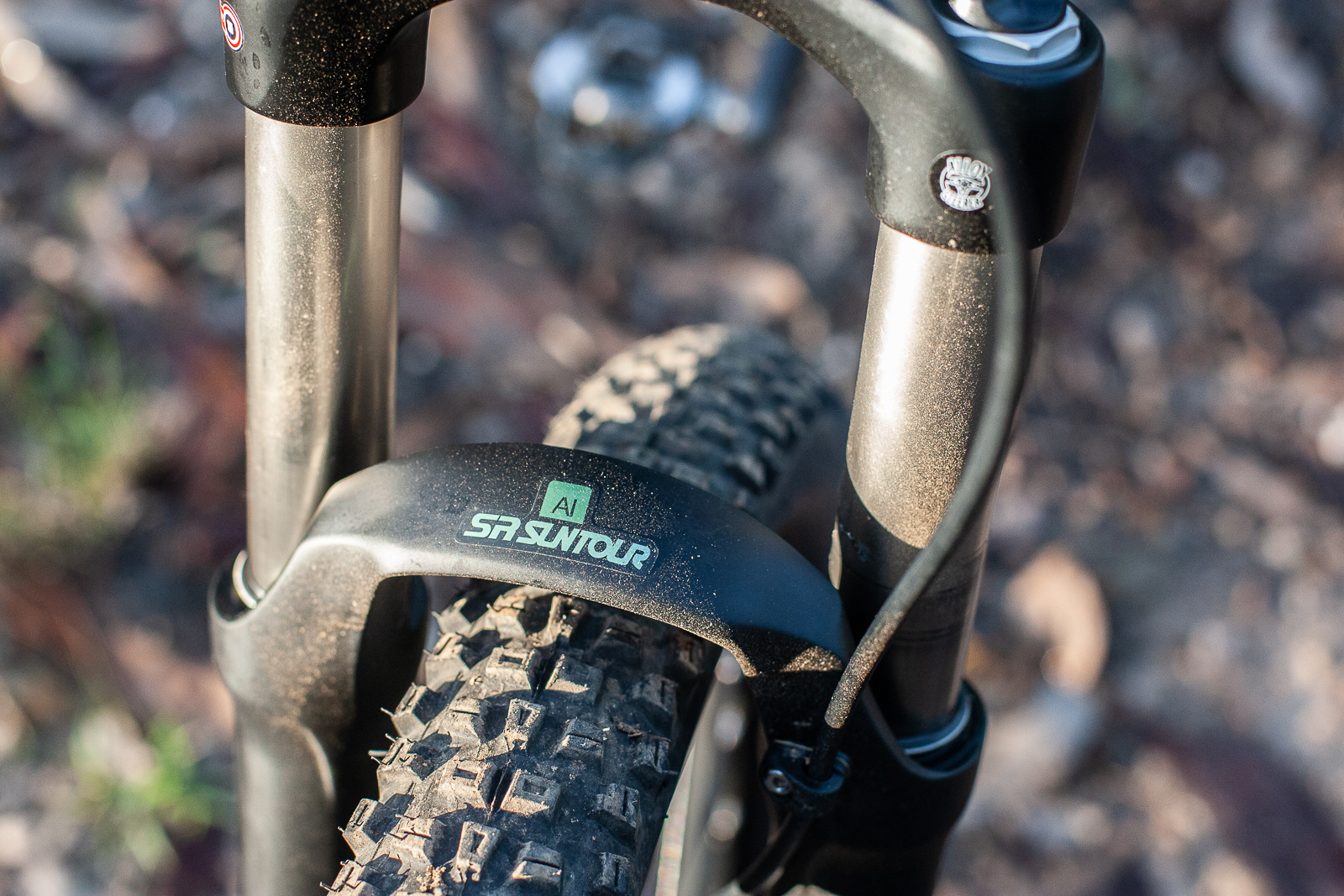
By running the Siskiu a little firmer all over it rode best at moderately fast trail speeds, as opposed to slower speeds. In fact, when you throw in the meaty but narrow 2.25” tread with tubes, the higher tyre pressures required there combine with the suspension to make a bike that's more fun at faster speeds than low ones. Higher end tyres, wheels and suspension components can be tuned to offer a supple ride at low speed and a supportive ride at high speed. But on this bike's components you sort of need to pick one or the other. I was happy to run it a little firmer and not end up with a fork that was packing up in longer rocky sections, and to ride without pinch flats. If this was your first foray into mountain biking then you could easily run the whole package a little softer, and understand that at higher speeds on rougher trails, there might be a compromise. There is so much to gain by spending the time to get tyre and suspension settings just right – and this is true on any mountain bike, no matter its price.
Some of the ergonomic choices weren't my favourite. I couldn't find a truly comfortable position with the handlebars, and the long brake levers needed to be run a very long way inboard. However, the under the bar dropper lever was a great choice, as was the long dropper and comfy Entity seat. Small changes to fit are to be expected on any bike, and the small changes I would make here are more of an indicator of aging and fussy wrists than anything else.
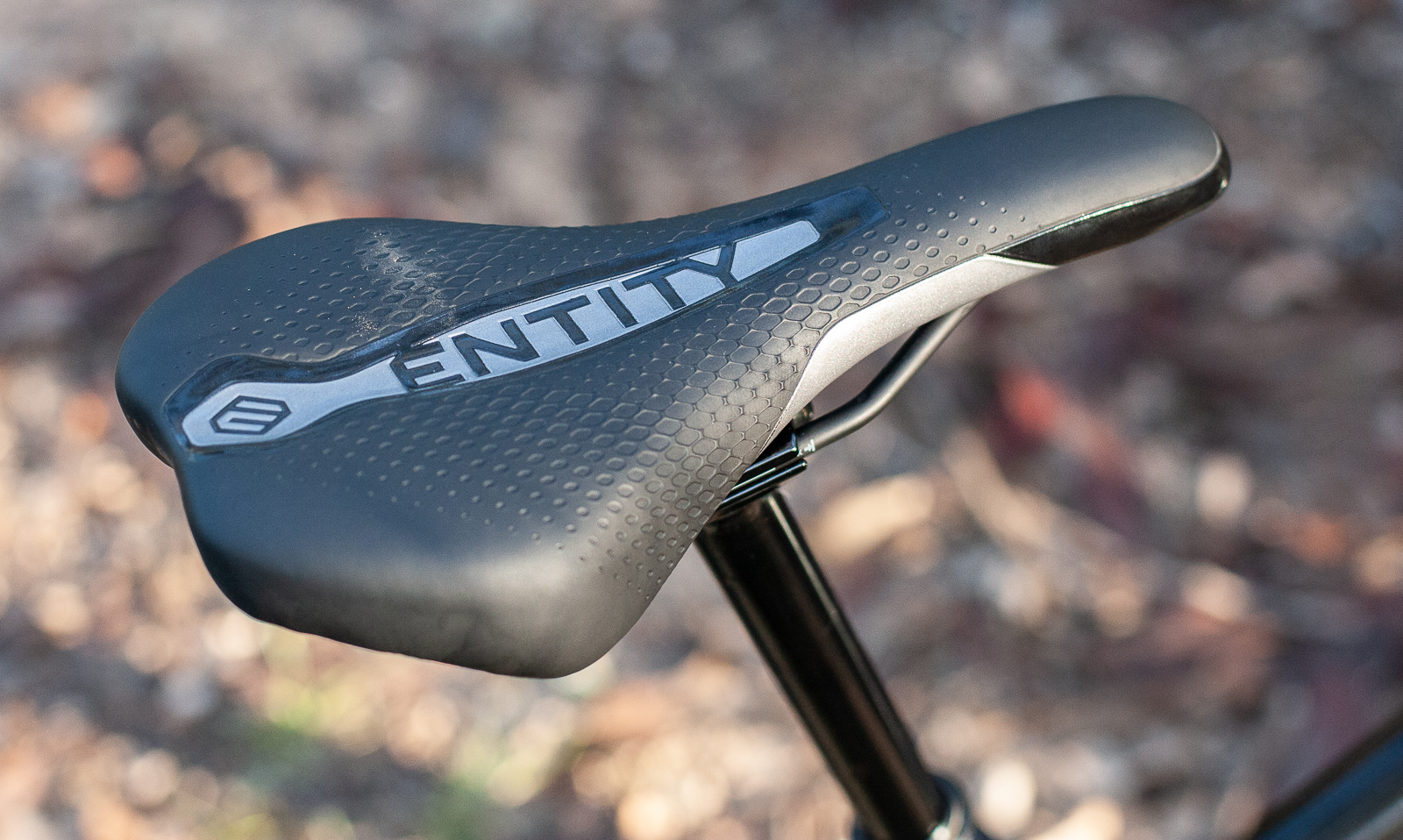
While the Suntour fork left me wanting, I really did enjoy riding the Polygon. At over 15kg there's a bit of bike to pedal up hill, but plenty of high spec trail bikes don't weigh much less. The overall handling of the bike offered no huge surprises, and the frame tracks well, which is handy when you're working the bike in rougher terrain to get the most out of it. A huge 170mm dropper and low standover height really helps in this regard. Add in a cockpit with a short stem and wide bars and it's easy to not think about the bike, but the lines you're choosing, as the Siskiu does not handle like you might expect an entry level bike to. It is easy to stay centred on, thanks to the updated geometry and generally good front to rear balance. But despite being the same frame as the D7 I tested last year, I did find the more basic suspension fork really held the Siskiu back.
Final Thoughts:
The highpoint of the Polygon Siskiu D6 is that it doesn't ride like an entry level bike. It's obvious that it won't be setting the world on fire with a top spec parts list. But Polygon, as usual, have done an amazing job building a well-rounded bike for a great price. Make no mistake, $2000 is a lot of money to spend on a bike for anyone looking to get into mountain biking. But as a bike to jump into the world of riding off-road, you'd be hard-pressed to find a better choice as an all-round trail bike for that money.
The Siskiu D6 suits riders looking to venture off the bike path and onto the trail networks. It's ideal for someone looking at a bike that lets them get into mountain biking without getting too specific. It pedals well, can handle most moderate trails just fine, and it will let you pick your way through some more advanced trails as well. But I'm not convinced on the claims for all-mountain capability, as the Suntour fork is just too lacklustre in the damping it offers.
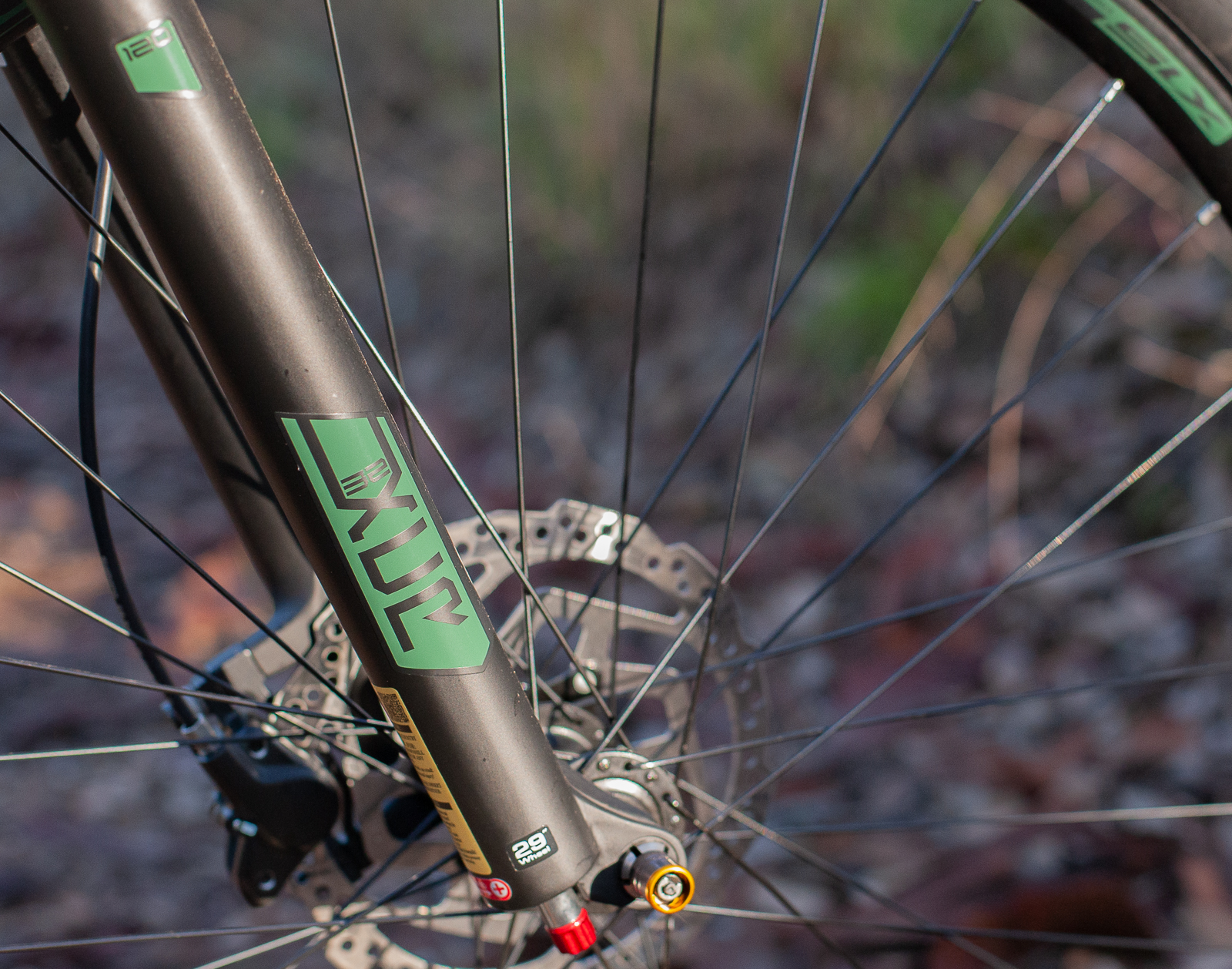
As a 120mm travel full-suspension bike, it's great for getting around the local trails, but if you're looking to do some XC races then maybe a Specialized Chisel Comp ($2100) would suit better. If you want to ride rougher, technical trails – maybe look at the Polygon Vander T7 at $2399. If you just want to get out and ride, this is a great place to start. My only hesitation would be if you were buying this bike as a bike to upgrade to a higher spec over time. The biggest performance improvement would be replacing the forks, and you might be spending $600 or more to change those, and you'd probably need a new front wheel in 110x15mm Boost spacing to go with a new fork. It all adds up quickly. As it is, the Polygon Siskiu D6 is a great bike to go and get off road with. If you know you're into mountain biking already, and want something closer to all-mountain capability, then I'd take a look at something a little higher specced for the long haul.
Price: $1999
From: www.bicyclesonline.com.au

